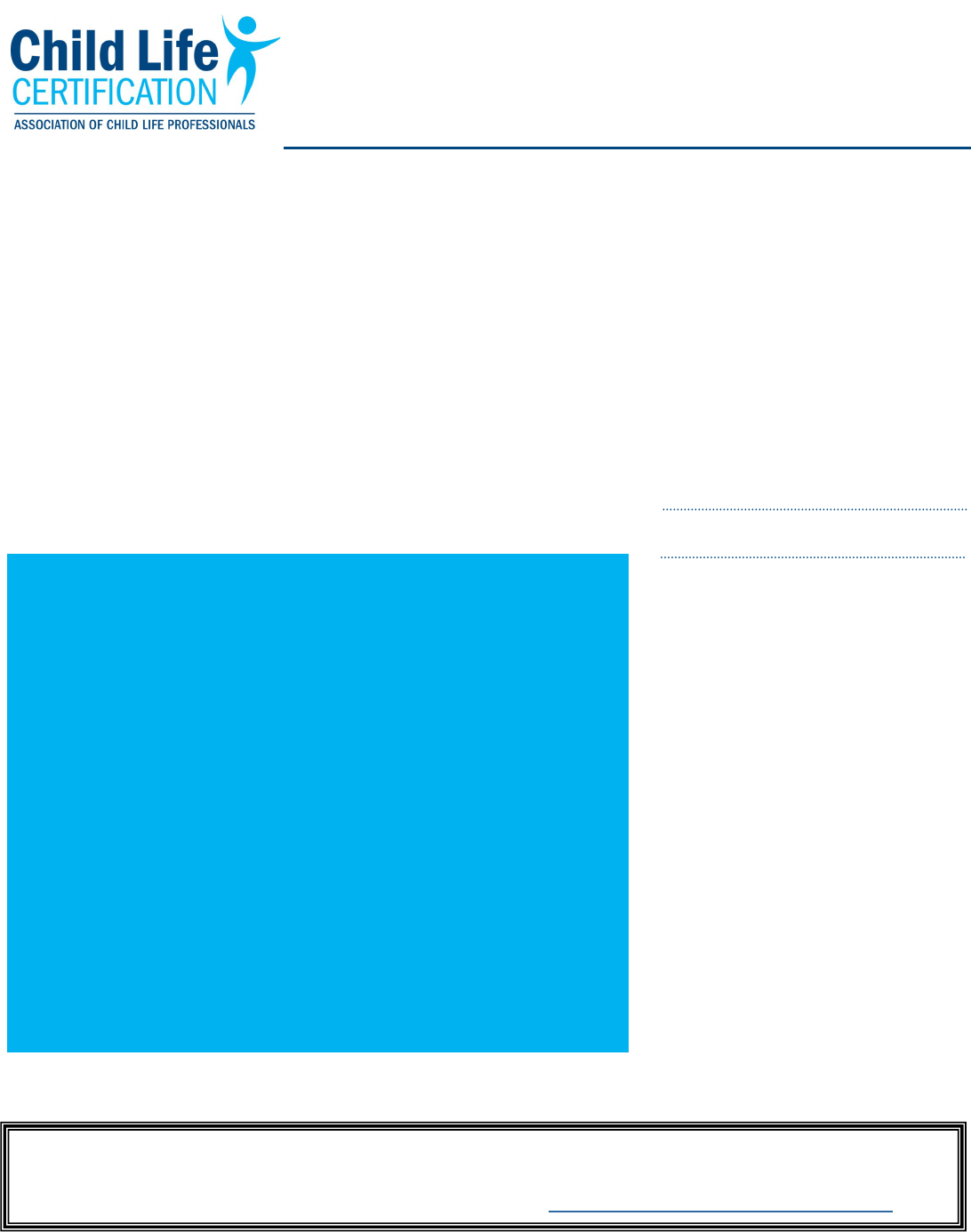
The child life profession is a dynamic, challenging, and oen compeve
discipline that demands excellence from its praconers. In tradional
hospital sengs and beyond, child life specialists are responding to a wide
variety of complex issues by applying their unique body of knowledge and
skills. As child life professionals are connually challenged to demonstrate
their value and experse to sasfy employer expectaons, those individuals
who have documented a basic mastery of child life theory and pracce –
and have the iniave to learn new skills – will become increasingly valua-
ble to their organizaons.
Child Life Professional Certification
Candidate Manual
Cercaon is a vital step for child life
specialists looking to sharpen their
professional edge. The CCLS creden-
aling program is a voluntary, rigor-
ous, examinaon-based professional
cercaon credenal. The require-
ments for cercaon are based on
academic and clinical experiences, and
successful compleon of the Child Life
Professional Cercaon Examinaon,
and are detailed herein.
January 2024
Contents:
There are many benets associated with becoming a Cered Child Life Spe-
cialist:
• Professional Identy: Earn the exclusive right to idenfy yourself
as a Cered Child Life Specialist (CCLS), the only credenal issued
in the child life profession
• Recognion: Achieve formal acknowledgement of your profes-
sional accomplishment
• Advancement: Benet from enhanced career opportunies, with
the potenal for increased salary
• Respect: Validate your specialized knowledge and experse to
peers, management and other interdisciplinary colleagues.
• Growth: Dedicate yourself to connued professional excellence
through educaon and professional development
• Esteem: Improve your credibility with hospital administrators and
the general public
• Passion: Demonstrate your commitment to the child life profes-
sion
• Pride: Enjoy elevated self-esteem and sasfacon in your work
Why Become Cered?
Please read this document carefully!
Any quesons should be directed to cercaon@childlife.org.
About Cercaon ...................... 2
Eligibility Requirements ............... 3
Coursework Requirement Detail .. 4
Eligibility FAQs ............................ 9
Eligibility Assessment ................ 11
Exam Fees ................................. 13
Eligibility Assessment FAQs ....... 14
Exam Registraon/Deadlines .... 15
Tesng Accommodaons........... 15
Scheduling Changes ................... 15
About the Exam/How to Prepare 16
Exam Day Policies ...................... 17
Aer the Exam/Score reporng . 18
Retaking the Exam .................... 19
Maintaining Cercaon .......... 20
Child Life Code of Ethics ............. 21
Exam Content Outline ............... 24
Forms ....................................... 27

What is child life cercaon?
Child life cercaon is the process by which, aer veri-
caon that an individual has met predetermined and
standardized criteria, they are granted me-limited recog-
nion and use of the Cered Child Life Specialist (CCLS)
credenal.
The Child Life Professional Cercaon Program is admin-
istered by the Child Life Cercaon Commission (CLCC),
Associaon of Child Life Professionals (ACLP) sta, and a
professional tesng agency. The program fosters uniform
standards of pracce and ethical conduct among child life
specialists. In addion, child life cercaon promotes
protecon for the general public from untrained individu-
als entering into an inappropriate relaonship with chil-
dren and families.
To achieve the CCLS credenal, each candidate must sasfy
all educaonal and experienal requirements established
by the CLCC, and must demonstrate an acceptable level of
knowledge of child life theory and pracce by successfully
compleng the Child Life Professional Cercaon Exami-
naon. The eligibility requirements for the exam are ap-
plied fairly, imparally, and consistently within applicable
laws, including all US government nondiscriminatory stat-
utes and laws.
Those who successfully complete the exam become cer-
ed for a ve-year period. During this ve-year cycle,
CCLSs are required to pay maintenance fees, and in the
h year of the cycle they must recerfy, either by retaking
the exam or through vericaon of required Professional
Development Units (PDUs).
Cercaon is granted independently of a candidate’s
membership in ACLP.
How do I become a Cered Child Life Specialist?
Applicants for cercaon must establish eligibility be-
fore they are seated for the Child Life Professional Cer-
caon Examinaon. Eligibility requirements are ex-
plained on the following pages.
There are no excepons made to the requirements.
Establishing eligibility for, taking and passing the Child
Life Professional Cercaon Examinaon is the only
way to become a Cered Child Life Specialist.
Child Life Code of Ethics
Applicaon for the CCLS credenal and maintenance
thereof require compliance with the Child Life Code of
Ethics, a body of ethical principles and rules which is
derived primarily for the benet and protecon of in-
fants, children, youth and families in sengs where
the potenal for damaging stress or trauma exists. The
Child Life Code of Ethics may be found on page 21.
There is a process in place by which consumers and
others may report complaints related to the behavior-
al conduct of CCLS credenal holders on the ACLP
website. There are also CLCC policies regarding the
criminal background of applicants and cercants.
All applicants and credenal holders are required to
acknowledge their agreement to abide by the Child
Life Code of Ethics.
Candidates and cercants who fail to abide by the
code may have their cercaon suspended or re-
voked.
Child Life Professional Cercaon Candidate Manual
Page 2
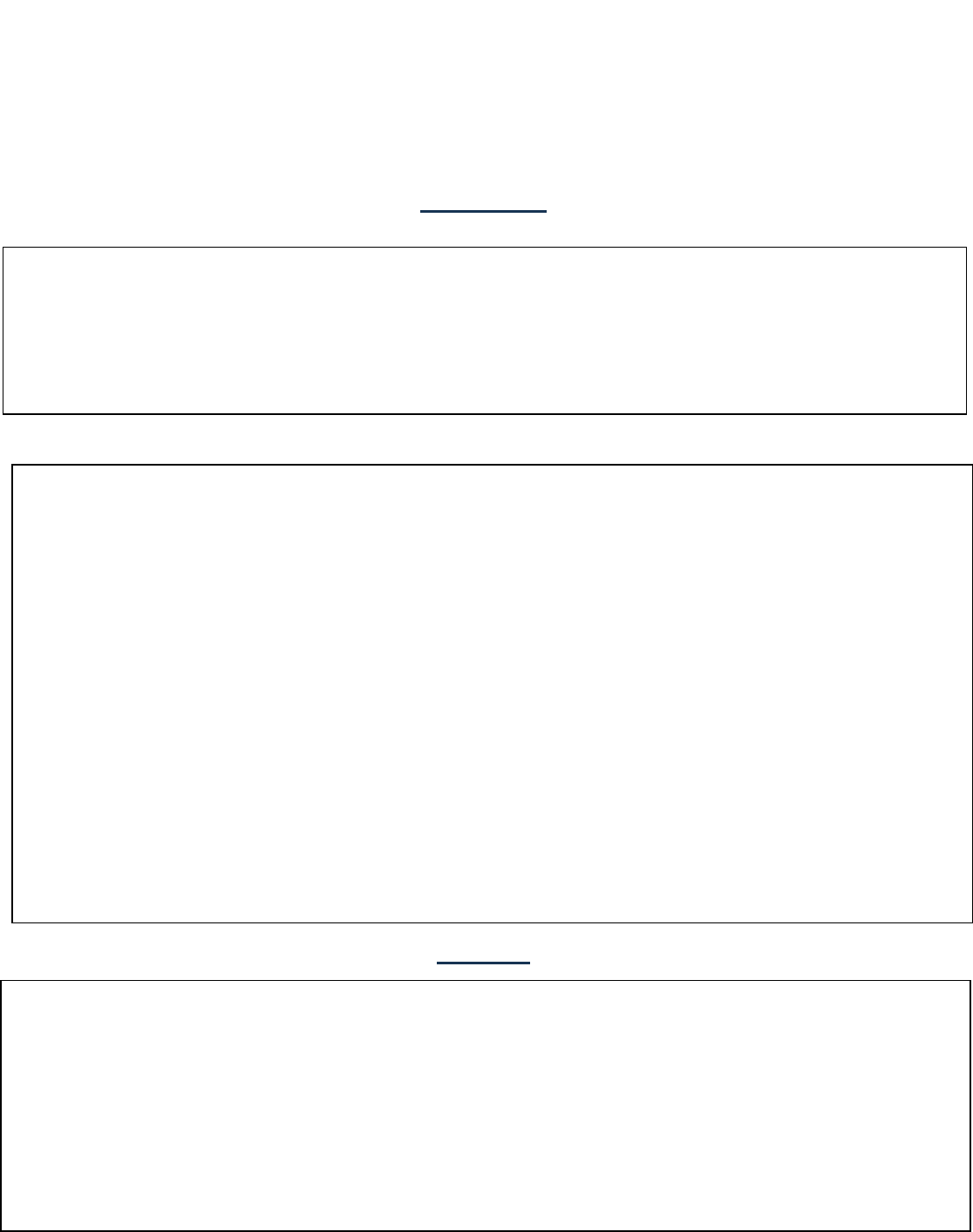
Page 3
Eligibility Requirements Effective January 1, 2019
Effective January 1, 2019, to establish eligibility for the Child Life Professional Certification Exam, the following will be
required of all candidates on or before the registration deadline for the exam administration for which they are applying:
Academic
• OR -
Clinical
Opon 1:
Degree from an ACLP-Endorsed Academic Program
*An eligibility assessment must sll be completed—addional instrucons can be found on page 11
Applicants are required to complete a minimum of 600 hours of a child life clinical internship
under the direct supervision of a Certified Child Life Specialist who:
• Maintains professional child life certification throughout the supervisory period
• Has a minimum of 4,000 hours of paid child life clinical experience prior to the start of the
supervisory period
• Takes responsibility for the educational development and guidance of the candidate in the
clinical setting
Opon 2:
1. Bachelor’s degree in any eld of study
-AND-
2. Coursework: must successfully complete 10 college/university courses as follows:
Child life course taught by a CCLS
A minimum of 2 child development courses that cover ages birth -18
Family systems course
Play course
Loss/bereavement or death/dying course
Research course
3 addional courses in related content areas
Addional informaon about the required courses can be found on the following pages
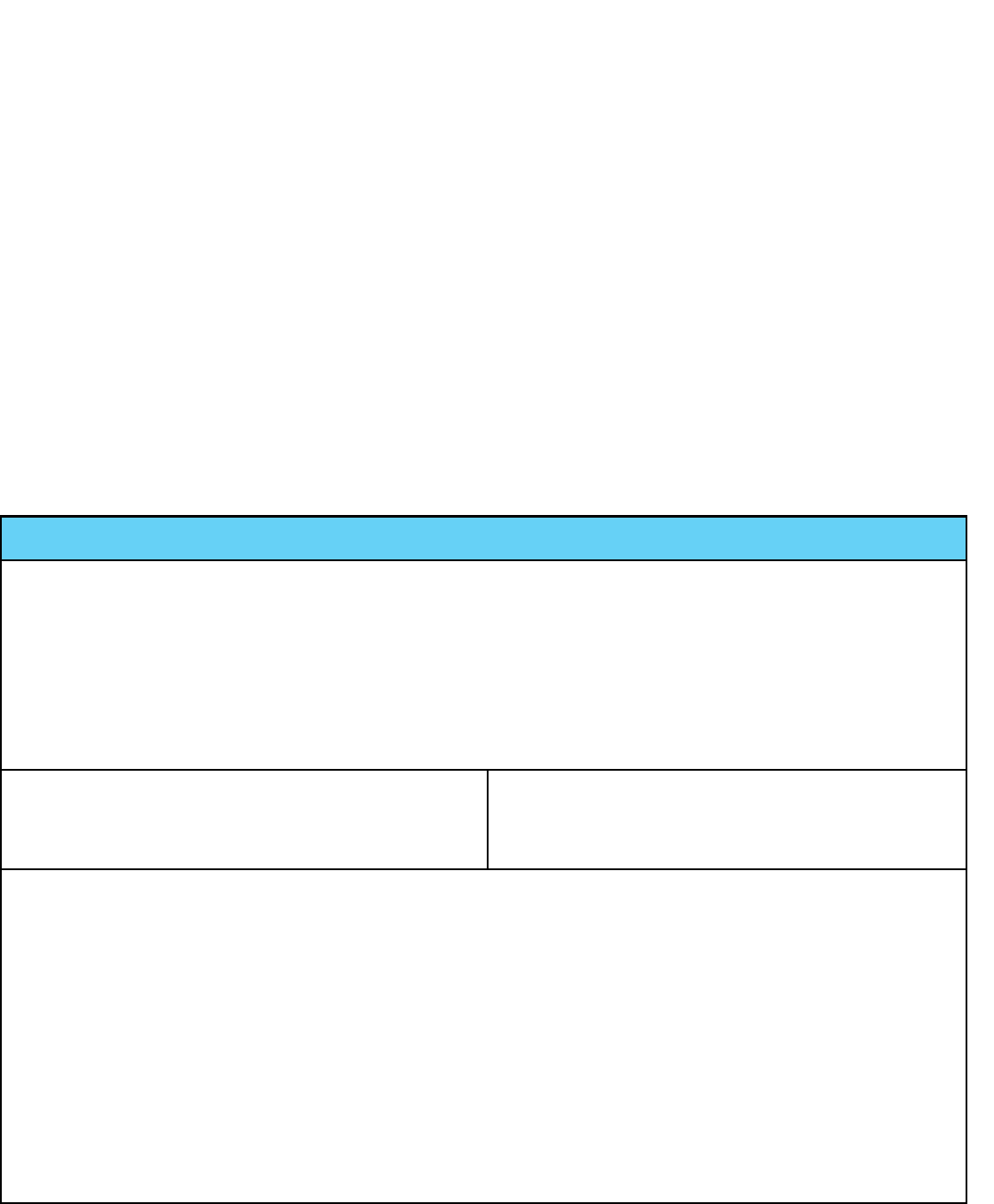
• For each of the 10 required courses, it is recommended that students take a 3-credit course or the equiv-
alent to have an appropriate depth of instrucon.
• A minimum of one full course must be completed for each of the required areas of study. (A minimum
of two courses are required for the child development requirement.)
• In order for a course to count, the required content must be the primary focus.
• All points within the Required Content secon of each course must be covered within the course. Appli-
cants may not use the same course to meet 2 or more of these requirements.
• Applicants are required to submit university-generated course descripons when applying for an Eligibil-
ity Assessment.
• Applicants must be prepared to provide university-generated syllabi if requested.
• Due to the limited involvement of the instructor in the curriculum being studied and uncertainty about
whether it was equivalent to a tradional course, independent study courses are generally not accepted
to fulll the course work requirements needed to establish eligibility for the cercaon exam.
1. Child Life
Required Child Life Content:
• A minimum of 3 credit hours or unit equivalency is recommended.
• There are 6 required areas of study that must be covered in this course.
• All 6 areas must be addressed.
• More than 1 course may be needed to fulll this requirement.
• The following content must be taught by a Cered Child Life Specialist® (CCLS) who meets the re-
quirements below.
Ocial Documents of ACLP/CLCC
Scope of Pracce
Impact of Illness
Family Centered Care
Therapeuc Play
Preparaon
Instructor Requirements:
• Hold/maintain the CCLS credenal throughout the period of instrucon
• A minimum of 4,000 hours of paid child life clinical experience OR a minimum of two years of experience
teaching child life subject maer*
• Maintains knowledge of the Associaon of Child Life Professionals Child Life Code of Ethics and the O-
cial Documents of the Associaon of Child Life Professionals
• Pursue training relevant to adult learning styles and evidence-based teaching methodology
*CCLS must be able to demonstrate that the two years of teaching experience was completed prior to 2022. Begin-
ning in 2022, those without prior teaching experiences who wish to iniate a child life course will only be considered
qualied if they have a minimum of 4,000 hours of paid child life clinical experience
Child Life Professional Cercaon Candidate Manual
Page 4
Required Coursework Details
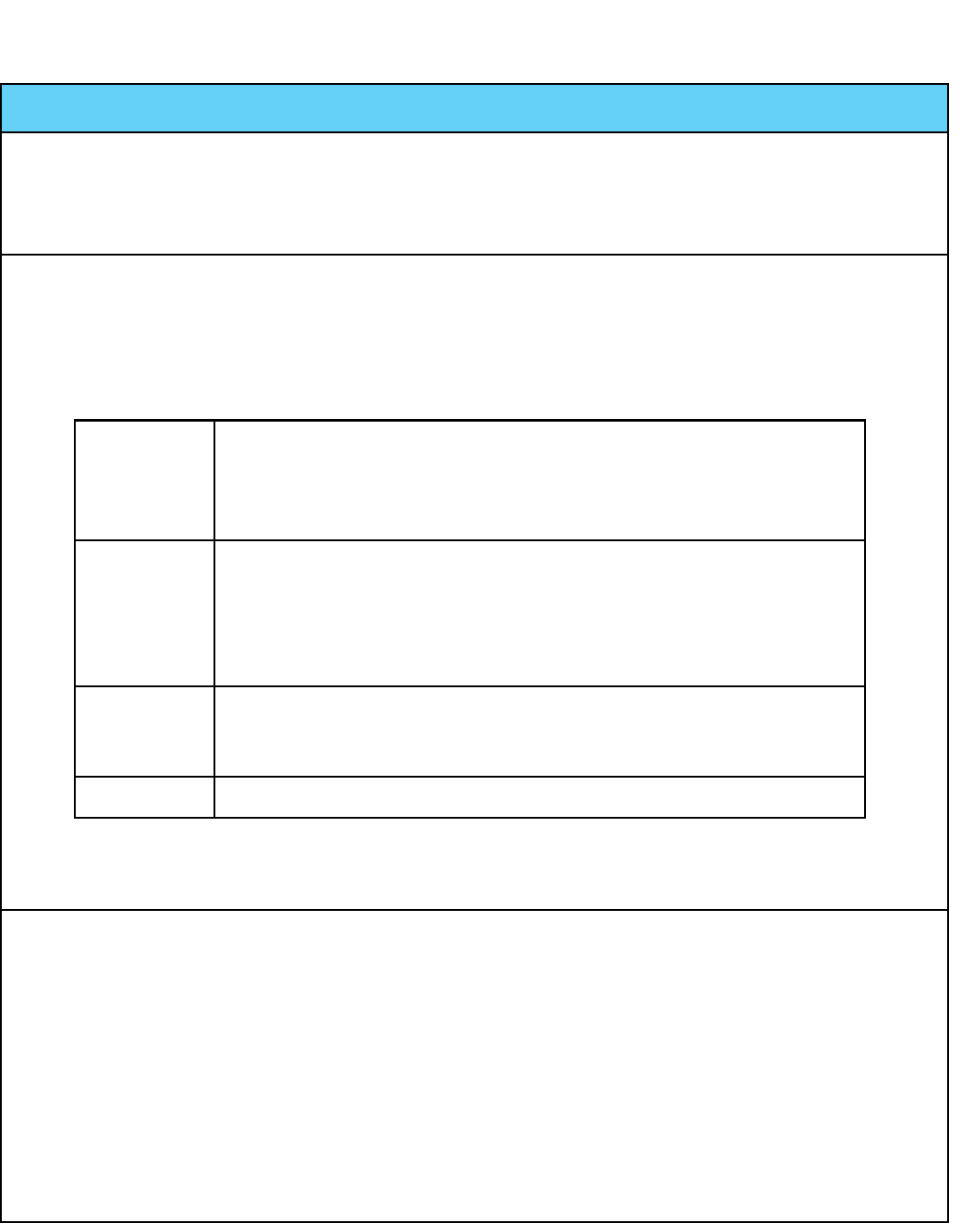
2. Child Development:
Required Content:
Typical child growth and development including theorecal content for children and adolescents (birth -
18-years old)
Required Number of Courses:
• At least two courses that focus curriculum on typical growth and development (not atypical) and
cumulavely cover child development from birth to 18 years.
• A minimum of 3 credit hours or unit equivalency for each course is recommended.
Claricaons:
• More than 2 courses may be needed to fulll this requirement.
• If any poron of this age span is not covered, addional courses must be taken.
• Course tles must contain the words “child” (infant, toddler, middle, latent, adolescent) and
“development” and indicate the age range covered by the course. Applicants subming courses that do
not follow this scheme may be required to submit addional informaon such as course syllabi.
• Courses covering the lifespan of development are not accepted due to the limited amount of me
and content allocated for children birth–18 years old.
• Courses focusing on adults or seniors are not accepted.
Page 5
Example 1 One course on children Birth – 8 (early childhood)
-AND-
One course on children 9-18 (middle childhood and adoles-
cence)
Example 2 One course on early childhood (birth-8 years),
-AND-
One course on middle childhood (9-12 years),
-AND-
One course on adolescent (13-18 years).
Example 3 One course on development birth – 18
-AND-
One course on infant, school age, or adolescent development
Example 4 Two courses on development birth – 18 (Not Recommended)
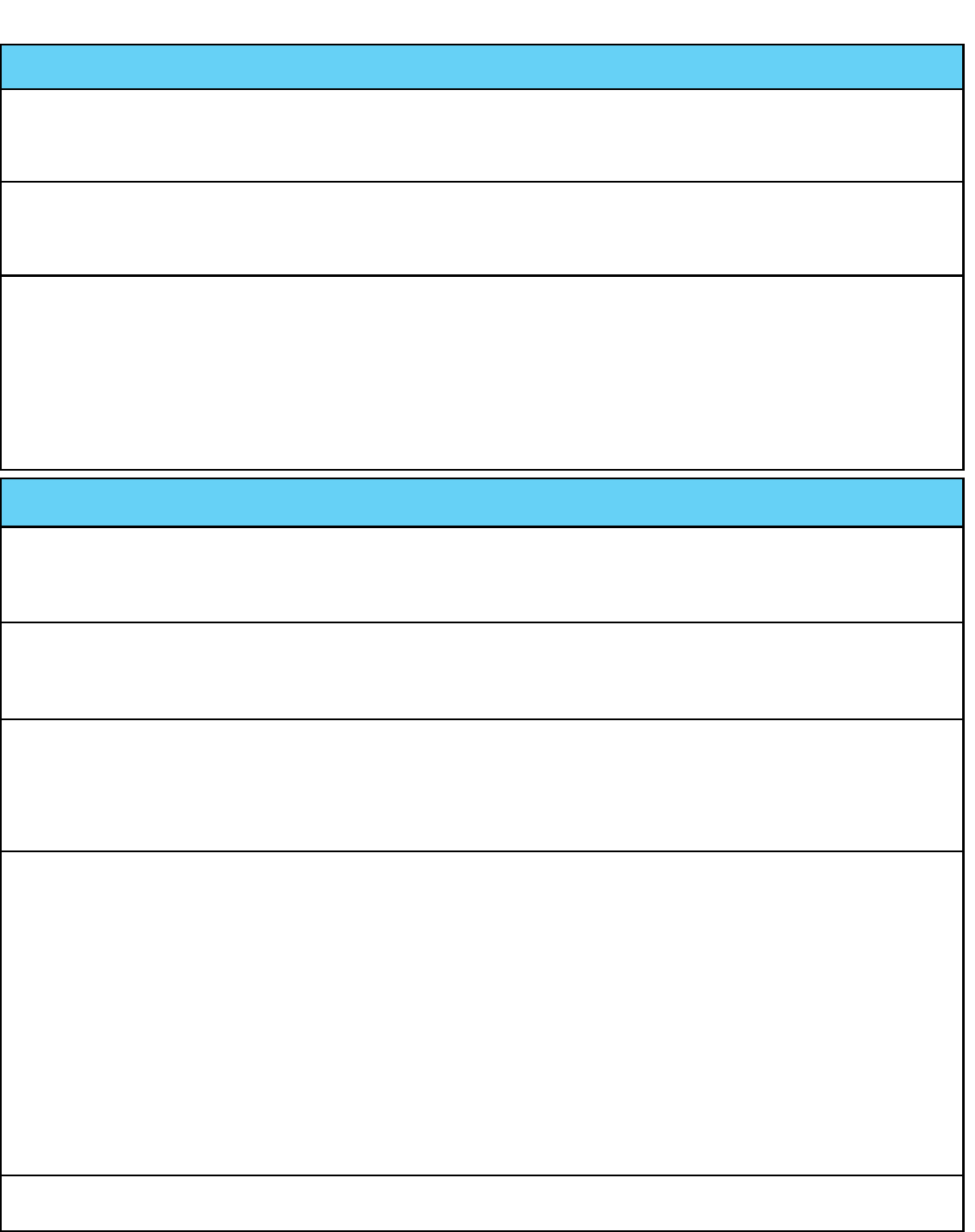
Child Life Professional Cercaon Candidate Manual
Page 6
3. Family Systems:
Required Content:
Content must focus on a systems approach to understanding families (e.g. an ecological approach or Family
Systems Theory)
Required Number of Courses:
One course is required
A minimum of 3 credit hours or unit equivalency is recommended
Recommended Components:
Historical and contemporary theories related to family structure and funcons
Family dynamics including broader societal perspecves of diversity and cultural variance
Family relaonships and the dynamics of family life
Adaptaons in family structure and interacon paerns during mes of transion
Adult-child interacons and family roles
Exploraon of current research and theory as it applies to family systems
4. Play:
Required Content:
This course must focus on the therapeuc aspects and/or learning objecves of play in infants, children, youth,
and young adults.
Required Number of Courses:
One course is required
A minimum of 3 credit hours or unit equivalency is recommended
Recommended Components:
Classical and contemporary theories on play
Play as an essenal element for children’s growth, development, and learning
Inuence of play environments on children’s play
Acceptable Curricula:
• Observing, assessing, and using play to make judgments about children’s learning
• Play as the primary vehicle and indicator of physical, intellectual, social, and emoonal development of chil-
dren
• Play principles and values
• Structuring therapeuc play sessions
• Creavity and play
• Guidance of play
• Play, curriculum and program development
• Art, music, and play for early childhood educaon*
• Concepts of leisure, play and recreaon*
*Courses that cover all stages of childhood (birth to 18) and non-recreaonal therapy courses are preferred.
Coursework NOT Accepted:
Courses from the college/university department of physical educaon are NOT accepted.
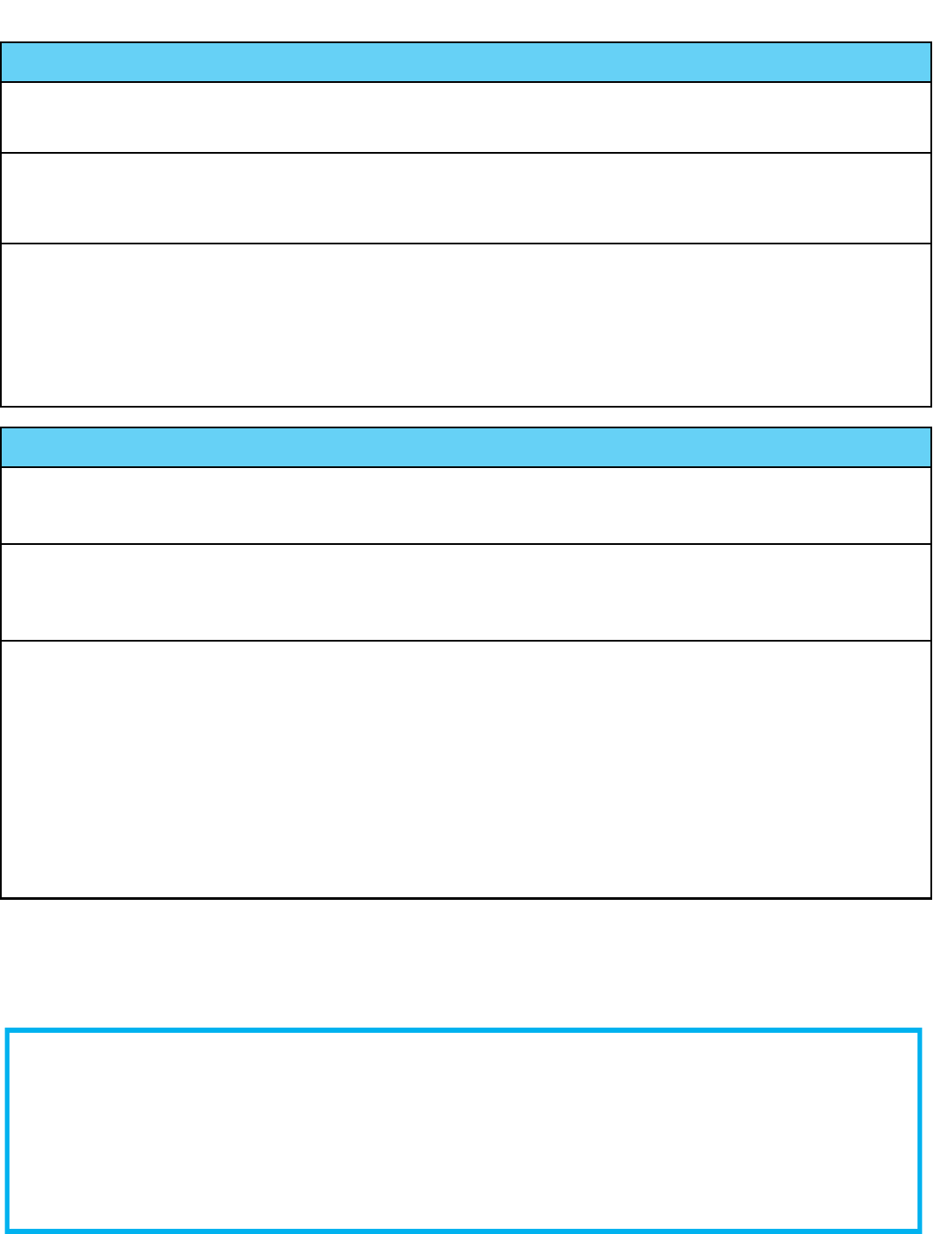
Page 7
5. Loss/Bereavement or Death/Dying:
Required Content:
Foundaons of loss, bereavement, and/or death/dying
Required Number of Courses:
One course is required
A minimum of 3 credit hours or unit equivalency is recommended
Recommended Components:
Historical, current, cultural, spiritual, and religious perspecves
Topics including ambiguous loss, transions, palliave care, self-awareness & self-care
Inclusion of content focused on impacts to children and families is recommended
Courses on aging are not accepted
6. Research:
Required Content:
Basic research methods, stascs, and outcomes that apply to clinical pracce and program review.
Required Number of Courses:
• One course is required
• A minimum of 3 credit hours or unit equivalency is recommended
Recommended Components:
• Foundaonal research literacy and research ethics
• Introductory approaches to research – quantave, qualitave, acon research, and analysis
• Introducon to knowledge translaon and disseminaon of research outcomes impacng clinical prac-
ce program review
• Introducon to the integral role of research in evidenced-based pracce.
• Research processes of data collecon, evaluaon, literature review, knowledge translaon
Please note: Courses with “research” in the tle will be accepted.
Joining the Associaon of Child Life Professionals
Although ACLP membership is not required in order to be cered, ACLP Membership makes sense! By joining
ACLP and taking advantage of signicant discounts on cercaon fees and study materials, candidates will ben-
et from savings that will more than make up for the cost of the rst year of membership.
For more informaon on ACLP membership, please visit the ACLP website.
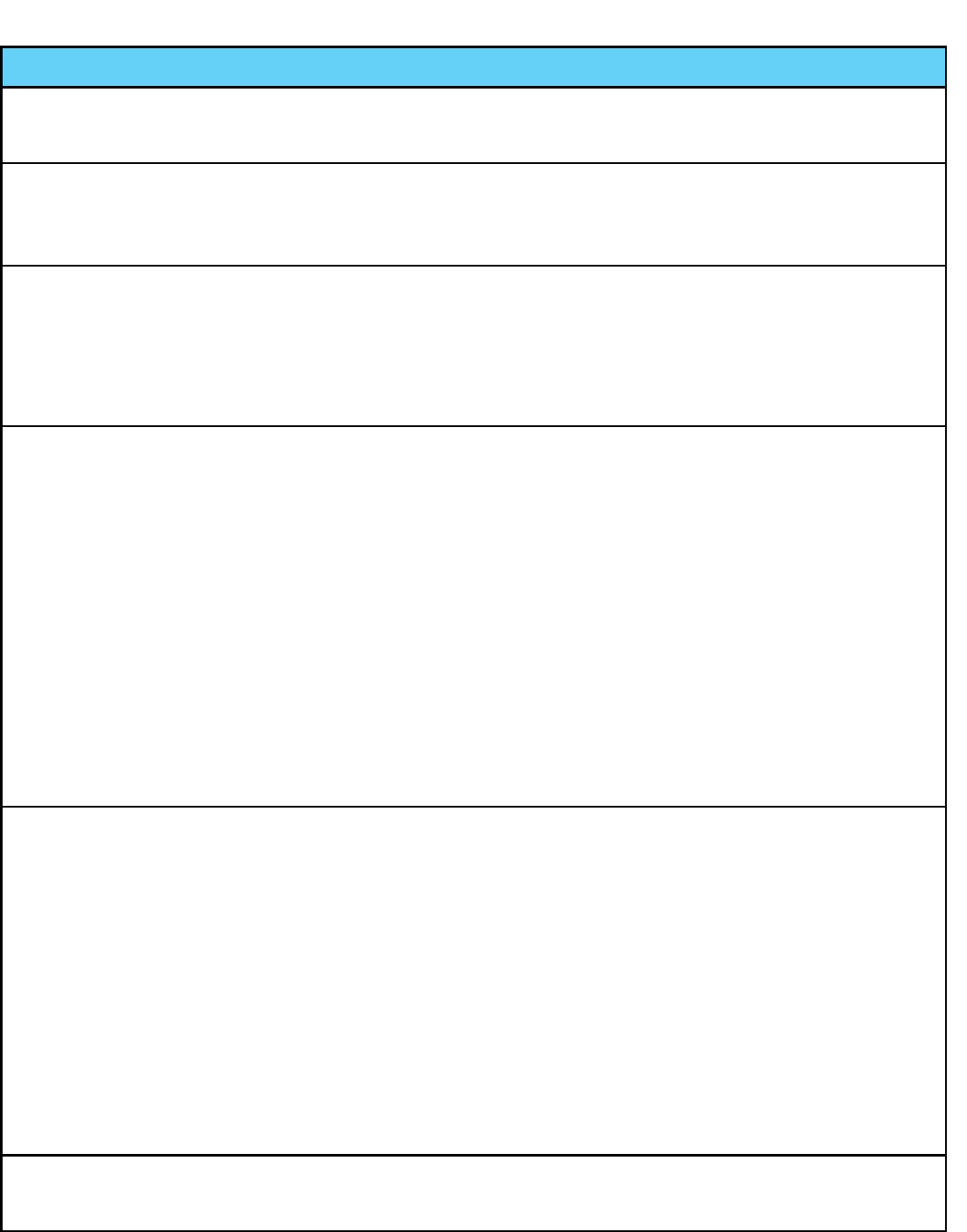
Child Life Professional Cercaon Candidate Manual
Page 8
7. Addional Coursework:
Required Content:
Child life or a closely related subject
Required Number of Courses:
• Three courses are required
• A minimum of 3 credit hours or unit equivalency per course is recommended
Recommended Courses: It is highly recommended that applicants complete these courses in the follow-
ing content areas:
• Ethics
• Human Anatomy and Physiology
• Medical Terminology
Addional Coursework Opons: Applicants who do not complete addional course work in the areas
listed above will be required to take three courses from one or more of the following college/university de-
partments:
• Child Life
• Child Development
• Counseling
• Expressive Therapies (only courses that cover the therapeuc applicaons of play, music, dance, and art
will be accepted; ne arts courses are NOT accepted)
• Family Development
• Family Dynamics
• Human Development
• Psychology
• Therapeuc Recreaon
Coursework Opons Requiring a Syllabus: Courses from the following areas of study or departments
will be accepted only if the course content (as demonstrated by the course syllabus) is closely related to
child life.
• Sociology
• Social Work
• Nursing
• Early Childhood Educaon
• Special Educaon
• Human Services
• Marriage and Family Therapy
• Allied Health
• Family Studies
Coursework NOT Accepted:
Courses in Recreaon Administraon
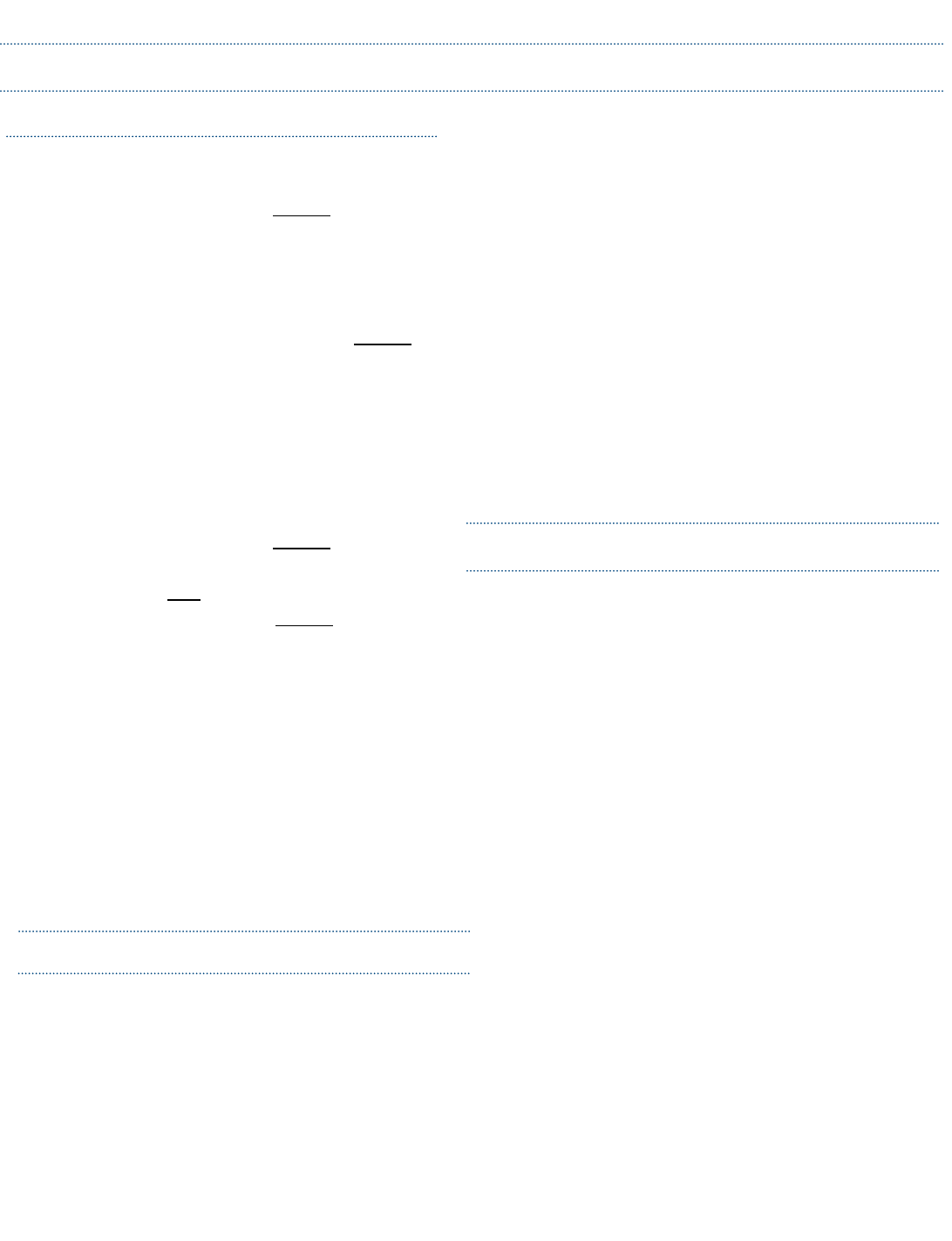
Page 9
Do the required courses have to be taken for college credit?
Yes. Non-credit or audited courses are not accepted.
Do the required courses have to be taken as part of a degree
program?
The required courses can be taken as part of or in addion to a
degree program. Check with the college/university about en-
rollment requirements.
Do the required courses have to be 3-credit classes?
No. While it is recommended that applicants have at least 3
credit hours or unit equivalency per course, there is no mini-
mum number of credit hours per class at this me.
Where can I take the required courses?
Courses meeting the requirement may be taken at any college
or university that has been accredited by an organization that is
recognized by either the US Department of Education or the
Council on Higher Education Accreditation or the international
equivalent.
Can the required courses be taken online?
Yes. Courses may be taken either in-person or online.
Am I required to take any child life-specific courses?
Yes, all candidates must complete at least one child life
course, and that course must be taught by a Cered Child Life
Specialist. There are six required areas of study that must be
covered. See page 4 For further details.
Course Work
Do I need to obtain a master’s degree to become cer-
ed?
Candidates are required to have a minimum of a bach-
elor’s degree. The previously-announced requirement
for a master’s degree in 2022 was rescinded. A mas-
ter’s degree is not required.
Frequently Asked Quesons
I was previously cered, but my cercaon lapsed
or expired. Am I sll eligible to take the exam?
All candidates must meet the current eligibility re-
quirements regardless of past cercaon status.
CCLSs whose cercaon has lapsed or expired must
re-establish eligibility by starng the applicaon pro-
cess anew. They must complete an eligibility assess-
ment, documenng the compleon of the current eli-
gibility requirements. register for the exam, pay the
exam fee, and successfully complete the examinaon.
I have already established eligibility under the previ-
ous requirements, but didn’t take (or pass) the exam.
What do I need to submit in order to register for the
exam again?
All candidates must meet the current eligibility re-
quirements regardless of past eligibility status. They
must complete a new eligibility assessment, docu-
menng the compleon of the current eligibility re-
quirements. register for the exam, pay the exam fee,
and successfully complete the examinaon.
Am I required to be a member of the Associaon of
Child Life Professionals to be eligible for cercaon?
Candidates for cercaon are not required to be
members of the Associaon of Child Life Professionals.
However, ACLP members receive discounted rates on
publicaons to prepare for the exam, examinaon
fees, and cercaon fees once cered.
Degree
General
Do I need a degree in child life to obtain cercaon?
Candidates are not required to obtain a degree in child
life in order to be eligible to take the Child Life Profes-
sional Cercaon Exam. A candidate’s bachelor’s de-
gree can be completed in any eld of study.
If I’m sll in school working on my bachelor’s degree,
can I take the exam?
All applicants are required to successfully complete
their bachelor’s degree on or before the registraon
deadline for the exam for which they are applying. Ap-
plicaons from students ancipang graduaon are not
accepted.

Page 10
Why am I required to take a child life course?
CLCC seeks to ensure that individuals pursuing a career in
child life will be proficient in their future practice by re-
quiring an academic background that includes knowledge
essential to child life practice. Academic courses that pre-
pare, support, and provide a solid academic and practical
foundation for students allow them to build a foundation
of knowledge in the core competencies of child life.
Why does the child life course have to be taught by a Cer-
tified Child Life Specialist?
When preparing students for areas of specialty such as
child life, having content experts providing instruction is of
great value. Those who have earned the CCLS credential
have demonstrated a level of expertise in child life that
helps make them uniquely suitable to instruct aspiring
child life practitioners.
Can the child life course be co-taught by a non-CCLS?
No. All instruction must be provided by a CCLS.
How do I find a child life course taught by a CCLS?
The required course may be completed at any fully-
accredited academic institution provided the required cur-
riculum and instructor requirements are met. Institutions
offering a child life course can be found by searching the
ACLP Academic Program Directory. ACLP/CLCC is not re-
sponsible for, nor does it endorse, the content or quality of
any of these courses. Prospecve students are encour-
aged to directly contact programs in which they are inter-
ested for specic informaon.
Do I have to submit a transcript for the child life course in
addition to the Child Life Course Verification Form?
Yes, the child life course must appear on an official col-
lege/university transcript with a passing grade and the
applicant must request verification through the Eligibility
Assessment online process or provide the Child Life Course
Verification Form (see the end of this document) signed by
the instructor showing that all six required topics of study
were covered.
My child life course did not cover all of the six required
topics. What do I need to do?
Academic programs may choose to provide coverage of
the six topics in more than one course as long as each
course covering the areas is taught by a CCLS. In such cas-
es, the digital verification process that is part of the Eligi-
bility Assessment or a Child Life Course Verification Form
must be submitted for each course, providing confirmation
that the applicant received instruction from a CCLS in each of the re-
quired topics of study.
I’m taking my internship for college credit. Can this count as my
child life course taught by a CCLS?
No. A child life internship or practicum taken for college credit cannot
be used to satisfy this requirement. Candidates must have BOTH an
internship AND a child life course taught by a CCLS in order to estab-
lish eligibility for the exam.
I took my child life course a while ago and don’t have a Child Life
Course Verification Form. Can I still use the course to establish eligi-
bility?
Without verification, courses cannot be used to meet the requirement
for a child life course taught by a CCLS. However, they may count
toward the other nine courses that are required.
I am enrolled in classes, but they won’t be complete before the reg-
istration deadline for the exam I want to take. Can I establish eligi-
bility in anticipation of completing the required courses?
No. All of the required course work must be complete on or before
the exam registration deadline for the administration for which can-
didates are applying. If any of the required courses are not complete
by that date, applicants must wait for a future exam date. Completion
must be documented on an official transcript on or prior to the regis-
tration deadline.
I don’t know if the classes I’ve taken will count; can my transcript be
reviewed?
The Eligibility Assessment is the vehicle used to review a candidate’s
progress toward meeng the eligibility requirements including the
course work requirement. In-progress courses are not re-
viewed. ACLP sta will connue to review courses only unl 10 have
been approved. Submission of each course from a transcript is dis-
couraged as it is unlikely that they will all be reviewed.
How do I get the clinical experience?
As the cerfying body for child life specialists, CLCC is limited as to
the level of assistance we can provide for internship placement.
We encourage candidates to contact facilies directly to locate
programs and to determine if they are qualied for placement. It
is the prerogave of the hiring instuon to set the requirements
for internship posions, which vary among instuons and may
include things that are not required by CLCC.
Clinical Experience
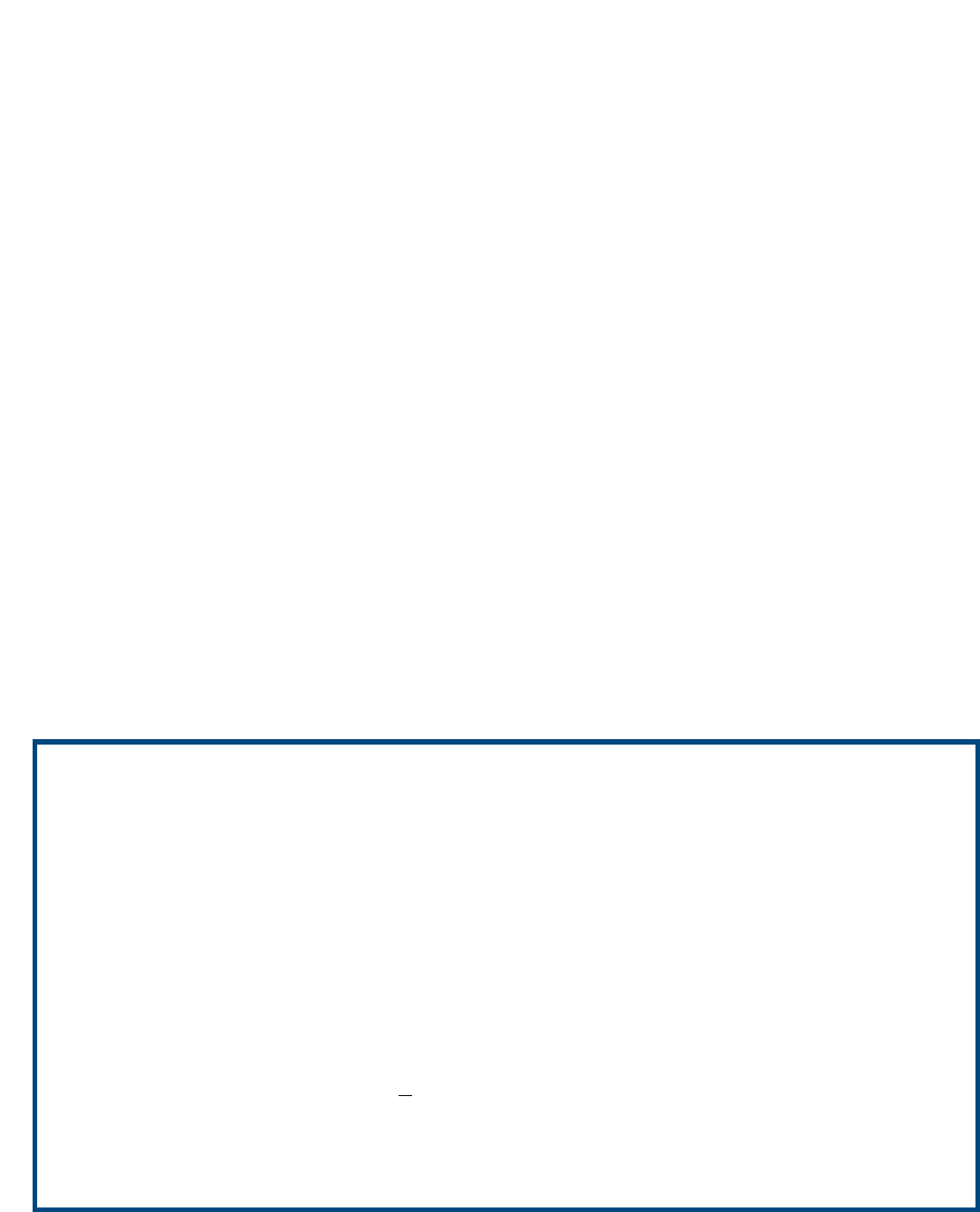
Can I use hours that I have worked as a child life specialist or
child life assistant to meet the clinical experience requirement?
The required clinical experience hours must be earned through a
child life internship. Paid work experience is no longer accepted
to meet this requirement.
Can an internship be paid?
Yes, there are no restricons on the payment of interns.
Can I use hours that I have worked with children outside the
child life profession to meet the clinical experience requirement?
Other types of clinical experience may not be substuted for any
poron of the clinical hours. All hours must be obtained through
an internship in child life.
What if my internship ends aer the exam registraon deadline?
A minimum of 600 hours must be completed on or before the ex-
am registraon deadline. If the internship is longer than
600 hours, CLCC does not require that the internship be complet-
ed by the deadline. Ulmately it is le to the internship supervi-
sor’s discreon to verify the hours prior to the conclusion of the
internship. However, if a candidate will not have completed 600
hours by the exam registraon deadline, they must wait and apply
for another exam administraon. Clinical experience must be
veried on or prior to the registraon deadline.
Does my internship have to be completed in a hospital?
A poron of the required hours must be completed in a hospital
seng. There is no minimum. The remaining hours may be
earned in other types of healthcare sengs.
Child Life Professional Cercaon Candidate Manual Page 11
IMPORTANT INFORMATION ABOUT THE ELIGIBILITY ASSESSMENT
The Eligibility Assessment service is part of a two-step exam applicaon process.
Step 1 - Eligibility Assessment AND Step 2 - Exam Registraon
In step 1, applicants log into their prole, pay a non-refundable fee for the Eligibility Assessment, and immediately begin
entering their eligibility informaon, including course work. During this period, applicants are able to save their work and
return to their applicaon at any me to monitor their progress towards eligibility. Because many child life internship pro-
grams require applicants to document that they have met the academic requirements, a report is available for the applicant
to print or email at any me during the Eligibility Assessment period.
Once eligibility is established, the applicant’s status will change to “candidate,” and they may proceed to step 2 - paying the
separate exam fee and registering for an exam administraon.
The Eligibility Assessment Fee is a one-me fee if the candidate successfully completes the examinaon prior to any changes
to the eligibility requirements. However, if the requirements change, the candidate’s status will return to “applicant” pend-
ing a new assessment (an addional fee applies).
Can I obtain the hours at more than one site?
Yes. If an instuon is oering a term shorter than 600
hours, then the candidate will need to acquire addional
hours at another facility. Vericaon of the hours must
be obtained from each site where the clinical training is
completed.
Do the clinical hours I completed in the past sll count?
Yes, provided that the hours meet the current require-
ments and can be veried by a CCLS supervisor.
PLEASE NOTE: The Clinical Experience Vericaon Form
(see nal pages of this document) has been revised. Old-
er versions of the Clinical Experience Vericaon Form
do not include all of the necessary elements to establish
eligibility under current requirements.
Prior to 2006, supervisors were not required to meet a
minimum number of paid child life work experience
hours. If a candidate was deemed eligible prior to 2006
using clinical experience under a supervisor who does
not meet the new requirements, they forfeited their eli-
gibility eecve January 1, 2006.
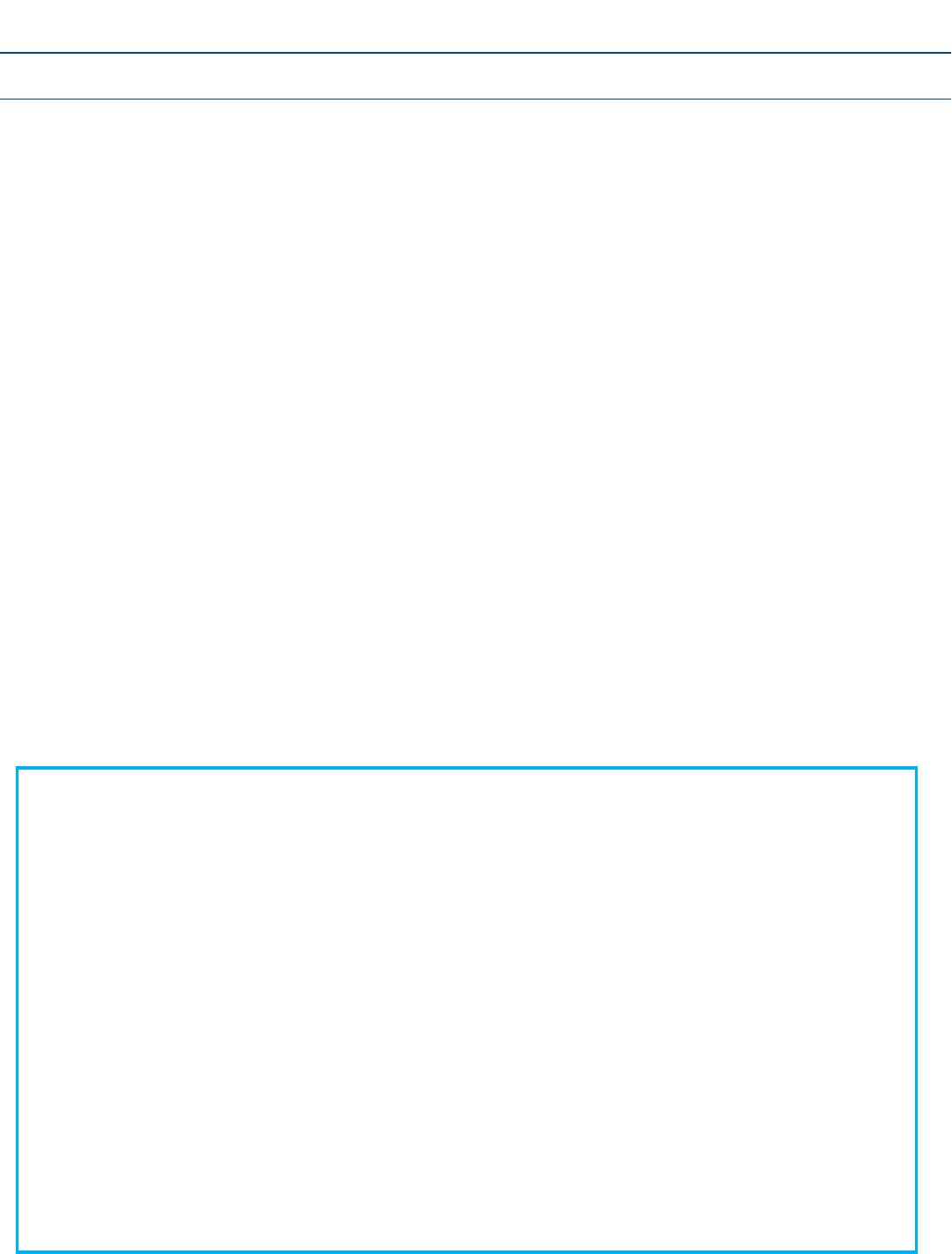
Page 12
Completing the Eligibility Assessment
Applicants are required to complete an Eligibility Assess-
ment, and once eligibility is established, to register for the
examinaon.
Because the Eligibility Assessment is an ongoing process,
applicants may leave any requirements blank that have yet
to be completed and return later to ll out those secons
as the requirements are completed.
Students enrolled in an endorsed program, please email
your Endorsed Program Leer (available from your aca-
start your Eligibility Assessment.
All others can start their Eligibility Assessment as follows:
1. Login (or create a new customer record) to your ACLP
online prole at www.childlife.org.
2. Click on the menu icon
4. Click on Start an Eligibility Assessment
5. Click on Create New Collecon
6. Click Next
7. Follow on-screen instrucons to complete your payment.
The following three parts of the Eligibility Assessment
may be completed in any order:
1. Enter degree/course work informaon
a. Click on Enter degree and courses for review.
b. Select the credit type – either degree or courses – and click
on Connue.
c. Enter the requested informaon and click on Save.
d. From here you may add more courses by selecng Add
Another Credit; or, Return to Transcript will take you to your
Evaluaon Report.
2. Enter informaon for vericaon regarding the child life
course taught by a CCLS
Note: if you are subming a hardcopy of the Child Life
Course Vericaon Form, please scan and email to cerca-
[email protected]. (Form found at the end of this document.)
a. From the menu icon, under Cercaon Portal, click on
Child Life Course Vericaon.
b. Enter the requested informaon and click on Save and
Connue.
c. Enter your instructor's last name in the box provided or
click on the icon on the far le of the box to open a dialog box
that will allow you to search for your instructor's name. It
may take 1-2 minutes for the system to search the database
for the instructor’s name.
d. Click on Next.
e. Conrm the informaon entered and click on Submit Your
Applicaon. Doing so will send an email to your instructor
requesng that they verify the informaon submied.
*OFFICIAL TRANSCRIPTS
Once you have submied your eligibility informaon, please send your ocial transcripts to our oce.
· If a university provides ocial transcripts digitally, they can be emailed to cercaon@childlife.org directly from the in-
stuon.
· If your instuon does not provide the digital opon for ocial transcripts, please mail the transcripts to:
Cercaon, Associaon of Child Life Professionals, 7600 Leesburg Pike West, Ste 200, Falls Church, VA 22043
Note:
· CLCC does not accept fax or email transmission of transcripts from applicants since this transmission automacally renders
them "unocial.”
· CLCC does not accept unocial transcripts that have been printed by the applicant from the university website.
· If the applicant is mailing ocial transcripts, they must be in an envelope signed/sealed by the college/university.
· You will be noed via email when your ocial transcripts have been received in our oce. You may then expect to see
results on your Evaluaon Report on your online prole approximately 2—3 weeks.
· If the name that will appear on your ocial transcripts does not match the name on your Eligibility Assessment, please
provide us with a vericaon of your name change such as a copy of a marriage license. This documentaon may be faxed,
emailed or mailed to our oce.
Documentaon presented in a foreign language must be translated into English, at the applicant’s expense, by a profes-
sional translaon agent with a notarized signature or stamp aesng to the accuracy of the contents.
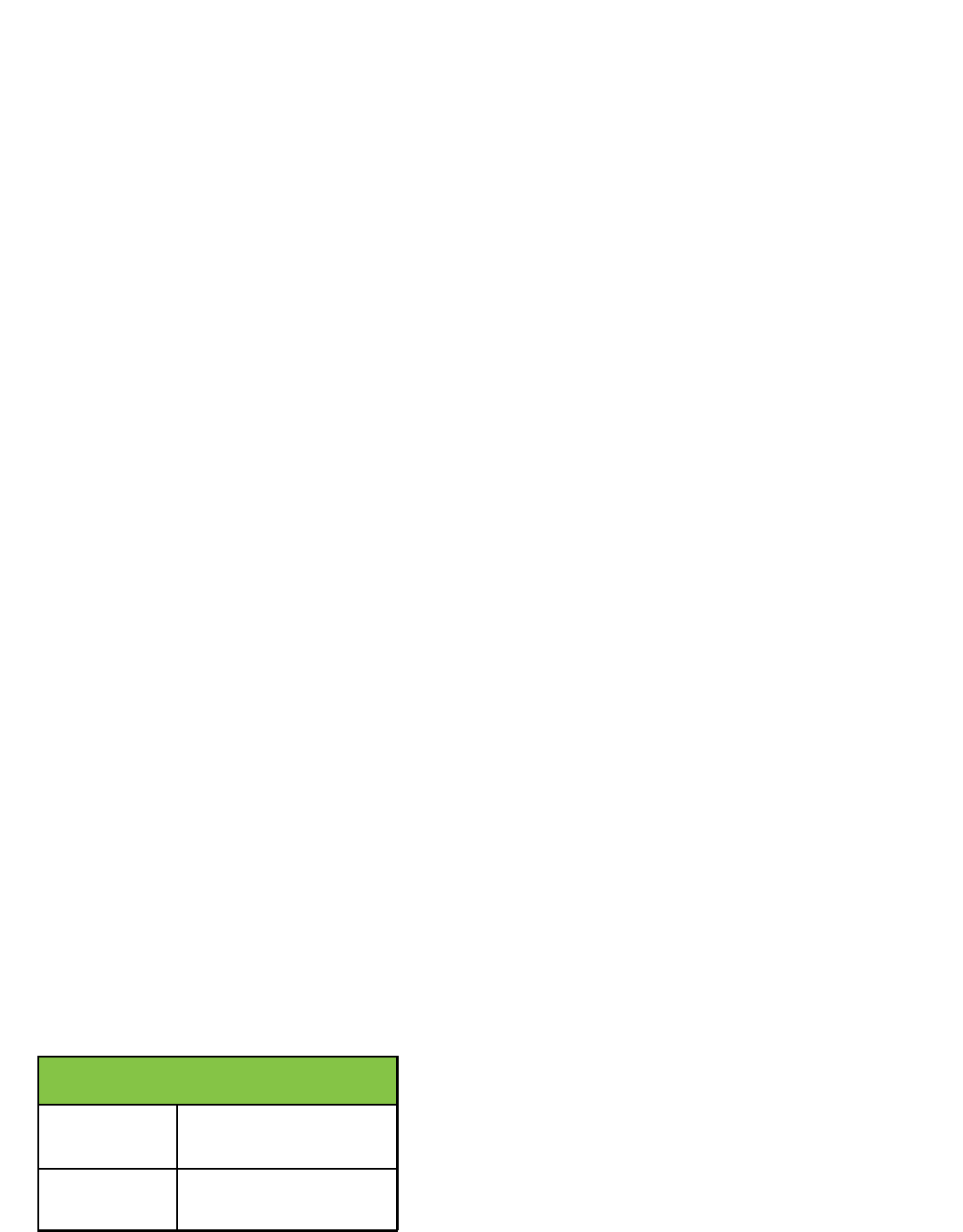
Page 13
Child Life Professional Cercaon Candidate Manual
Please remember that you must submit an ocial
transcript* in order for degree and coursework infor-
maon to be reviewed.
ACLP sta will connue to review courses only unl all
requirements are sased. Submission of each course
from a transcript is discouraged as it is unlikely that they
will all be reviewed.
3. Enter clinical experience for vericaon
Note: if you are subming a hardcopy of the Clinical
Experience Vericaon Form, please scan and email to
cerca[email protected]g. (Form found at the end of
this document.)
a. From the menu icon, under Cercaon Portal, click
on Clinical Work Vericaon.
b. Enter the requested informaon and click on Save
and Connue.
c. Enter your supervisor's last name in the box provided
or click on the icon on the far le of the box to
open a dialog box that will allow you to search for your
supervisor's name. It may take 1-2 minutes for the sys-
tem to search the database for the instructor’s name.
d. Click on Next.
e. Conrm the informaon entered and click on Submit
Your Applicaon. Doing so will send an email to your
supervisor requesng that they verify the informaon
submied.
Only clinical experience that has been completed can be
veried. If you are currently compleng your internship,
please wait unl it is completed to start this process.
Providing Supporng Documentaon for your Eligibil-
ity Assessment
All candidates are required to send supporng docu-
mentaon needed to establish eligibility.
We strongly encourage candidates to send any sup-
porng documentaon using a delivery method that
will provide them with receipt conrmaon. Applicants may use
their receipt to conrm that their materials were successfully deliv-
ered to our oce.
For the academic requirements, if the applicant graduated
from an ACLP endorsed academic program, they are required
to submit:
1. Endorsed Program Leer (available from the academic program
director)
This should be provided to cercaon@childlife.org to start an Eli-
gibility Assessment
2. Degree Documentaon Required:
An original OFFICIAL* transcript showing successful compleon of
the endorsed academic program
For the academic requirements, all other applicants will need
to provide:
1. Degree Documentaon Required:
An original OFFICIAL* transcript from the college/university confer-
ring the degree, which shows the type of degree granted and the
date conferred. Please conrm that the transcript is issued aer the
date the degree was conferred.
2. Course Work Documentaon Required:
Applicants must request verification through the Eligibility Assess-
ment online process or provide the Child Life Course Verification
Form signed by the CCLS instructor showing that all six required top-
ics of study were covered.
AND
An OFFICIAL* transcript from each college or university where the
course work was completed.
• All 10 courses including the child life course must appear on the
transcript(s) with a passing grade.
• No in-progress courses will be accepted.
• Transferred courses from another school must have a passing
grade listed on the transcript or be documented by another OFFI-
CIAL* transcript from the original college/university.
• Online courses must be reected on an OFFICIAL* transcript with
a passing grade.
*NOTE: “OFFICIAL” is dened by each college/university; for de-
tails, please check with the school’s Registrar’s Oce. Faxed and
photocopied transcripts are not accepted. Emailed transcripts are
only accepted if sent directly by the academic instuon and are
considered ocial by the school.
Examinaon Fees*
ACLP Members Non-members
$300.00 U.S. $450.00 U.S.
*As of publicaon date; all fees are subject to change.

Page 14
ALL applicants must submit:
3. Clinical Experience Documentaon Required:
Applicants must request verification of their clinical
experience through the Eligibility Assessment online
process or provide the Clinical Experience Verifica-
tion Form signed by the CCLS supervisor verifying
that a minimum of 600 hours of child life clinical
training was completed. If hours were earned at mul-
ple sites, vericaon of the hours must be obtained
from each site.
Please note that previous, outdated versions of the
Clinical Experience Vericaon Form do not include
all of the necessary elements to establish eligibility
under current requirements, and will not be accept-
ed.
How do I get my course work reviewed?
The Eligibility Assessment is the vehicle used to re-
view an applicant’s progress toward meeng the eli-
gibility requirements (including course work).
Applicants pay a fee* to iniate an Eligibility Assess-
ment and submit informaon and materials
(including ocial transcripts and other vericaon
documents) as the requirements for establishing ex-
am eligibility are completed. Once all steps in the
Eligibility Assessment have been completed, the ap-
plicant is granted access to register for an upcoming
exam.
*If the eligibility requirements change, a second pay-
ment of this fee will be required as a new assessment
must be opened.
When can I expect “results”/updates?
You will be noed via email when your o-
cial transcripts have been received in our oce. You
may then expect to see results on your Evaluaon
Report on your online prole in approximately 2—3
weeks. You may print and disburse the Evaluaon
Report at any me.
What about courses “in progress?”
Only those courses that appear on an ocial transcript with a passing
grade will be reviewed for acceptance as part of an Eligibility Assess-
ment. Any “in progress” courses will appear as ineligible but you may
provide updated ocial transcripts once they become available and
those courses will be re-evaluated.
Why aren’t the 6 child life course areas or topics showing as passed?
We must receive vericaon from the CCLS instructor that the 6 areas/
topics were covered. This can be achieved by emailing a completed
Child Life Course Vericaon Form (found at the end of this document)
to cerca[email protected] or through the online vericaon process
described on pp. 2-3.
My instructor has veried my CL course but it sll appears as ineligible
on my report. Why?
Your Child Life Course, while veried by your instructor, has not been
reviewed or accepted because we have not yet reviewed an ocial tran-
script documenng successful compleon of the course. Course work,
including the child life course is not “passed” unl sta has reviewed
ocial transcripts and conrmed that the submied course work has
been completed with a passing grade.
How do I submit transcripts?
If your university provides digital versions of ocial transcripts, these
may be emailed to cercaon@childlife.org directly from your instu-
on.
If your instuon does not provide the digital opon
for ocial transcripts, please mail the transcripts to ACLP,
7600 Leesburg Pike West, Ste 200, Falls Church, VA 22043
CLCC does not accept faxed or emailed transcripts from applicants since
this transmission automacally renders them "unocial.”
CLCC does not accept unocial transcripts that have been downloaded
by the applicant from the university website. If the applicant is mailing
ocial transcripts, they must be in an envelope signed/sealed by the
college/university.
If the name that appears on your ocial transcripts is dierent than that
on the Eligibility Assessment, please provide us with a vericaon of
name change such as a copy of a marriage license. This documentaon
may be faxed, emailed or mailed to our oce.
If you establish eligibility to sit for the exam…
Candidates will be noed by email if eligibility has been established.
They are then given access to register for an upcoming exam administra-
on window. There will be a slight delay between establishing eligibility
and the email with exam registraon informaon.
Candidates will subsequently be contacted by ACLP’s tesng agency
with informaon about how to schedule the exam at the tesng center
and on the date preferred.
Candidates are permied to choose a date within the tesng window
Eligibility Assessment Frequently Asked Questions
Documents submied will not be
returned. Please keep copies of all
materials submied
for your records .
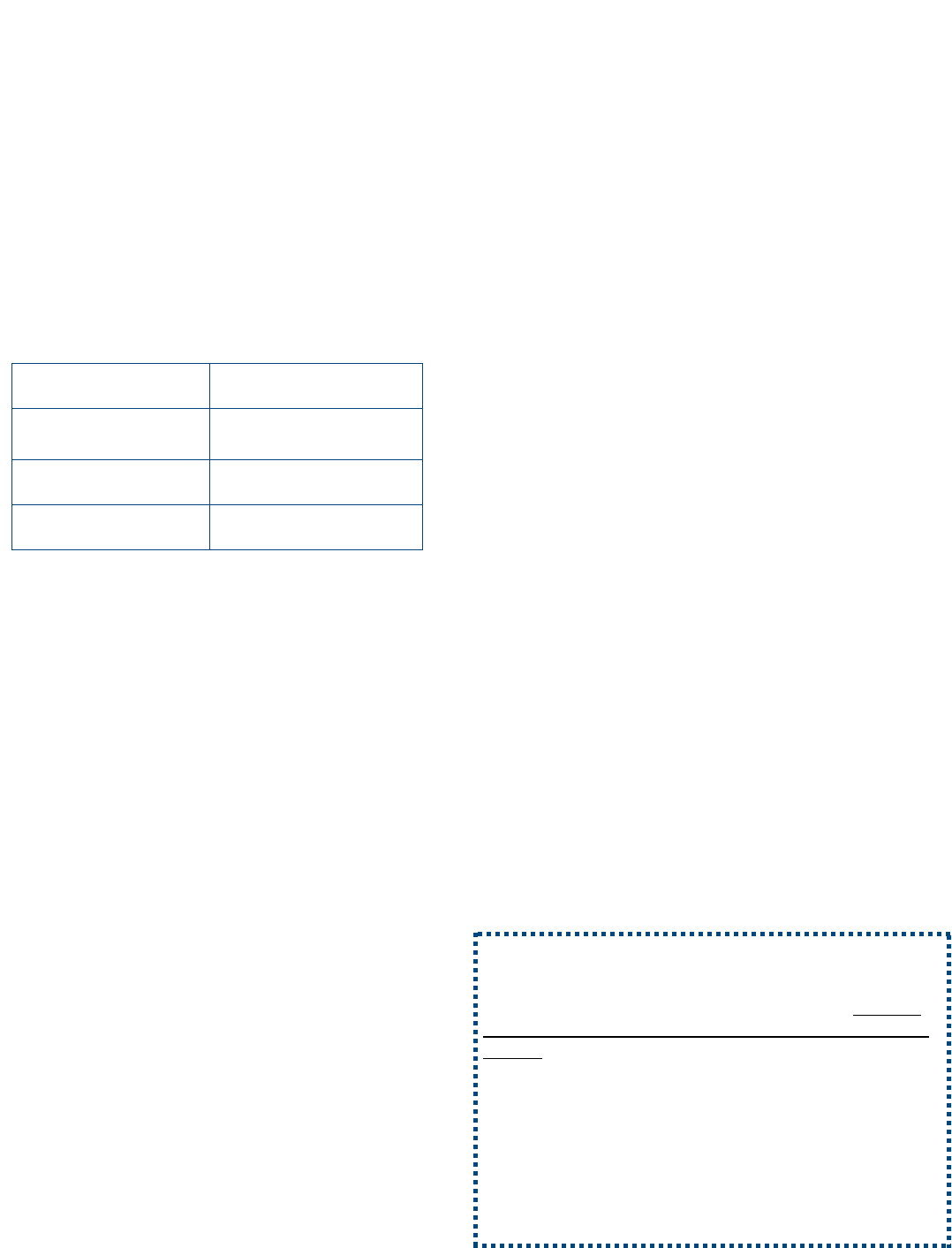
Page 15 Child Life Professional Cercaon Candidate Manual
Withdrawals and Scheduling Changes
Can I withdraw from the examinaon?
Withdrawal requests must be RECEIVED by 11:59 PM eastern me
a minimum of ve days prior to the start of the tesng window for
which the candidate is scheduled. Requests received aer this date
will not be honored and the candidate will forfeit the enre exami-
naon fee. Requests to withdraw may be sent to cerca-
Examinaon fees will be refunded (less a $50.00 US processing fee).
The candidate must establish eligibility for any future exam admin-
istraon.
Can I defer my applicaon to another administraon?
Deferral requests must be RECEIVED by 11:59 PM eastern me a
minimum of ve days prior to the start of the tesng window for
which the candidate is scheduled. Requests received aer this date
will not be honored and the candidate will forfeit the enre exami-
naon fee. Requests to defer may be sent to cerca-
The candidate must connue to meet all eligibility requirements in
place for the new exam administraon.
There is a $50 US processing fee for each administraon change.
IMPORTANT NOTES ABOUT SCHEDULING CHANGES:
If you have received login informaon from our tesng vendor
and/or scheduled the exam through their website you must
contact BOTH ACLP and SMT directly to make any scheduling
changes.
SMT/Prometric may elect to charge a fee for schedule modi-
caons in addion to any fees ACLP charges.
If you wish to reschedule the exam within the same tesng
window and you do not contact SMT at least ve days prior to
the day you are scheduled to take the exam, you will forfeit
the enre examinaon fee.
Tesng Window Registraon Deadline
March 15-30 March 10
August 15-30 August 10
November 1-15 October 27
Aer scheduling the exam, candidates will have the op-
portunity to save and print an admission document
which must be presented at the tesng center on the
day of the exam. The name on this document must
match the government issued ID that you will present
at the tesng center of your choice.
Eligibility Appeals Process
Candidates experiencing diculty establishing eligibility
may appeal to the CLCC Appeals Commiee stang the
reason for the appeal.
The request for appeal must be accompanied by any
supporng documentaon the applicant wishes to sub-
mit.
Registering for the certification exam
Once a candidate has established eligibility, they are
given access to register for the cercaon exam.
There will be a slight delay between establishing eligibil-
ity and the email with exam registraon informaon.
Please note that candidates are required to register a
minimum of ve days prior to the start of the exam ad-
ministraon window. It is recommended that candi-
dates apply as soon as possible as the schedule at the
desired tesng center may ll up quickly. Please note
that candidates who will be requesng special tesng
accommodaons, must submit those materials two
weeks prior to the registraon deadlines below.
To register online:
1. Log at www.childlife.org.
2. Click on the menu icon
3. Click on Register for the Cercaon Exam
4. Complete the aestaon and sign digitally
5. Click on Update
6. Click on Conrm
4. Select the desired test administraon window
5. Click on Register
6. Follow the on-screen instrucons to complete your
payment
Aer registering for the exam, our tesng partner will contact you
with informaon necessary to schedule the exam. There will be a
slight delay from the me you pay for the exam unl you receive
instrucons for scheduling the exam; you will receive an email with
informaon within 5 business days. Please note that you must
schedule the exam a minimum of 5 days prior to the desired
tesng date.
Special Testing Accommodations
All US examinaon sites are fully accessible and compliant with the
Americans with Disabilies Act. Special tesng accommodaons
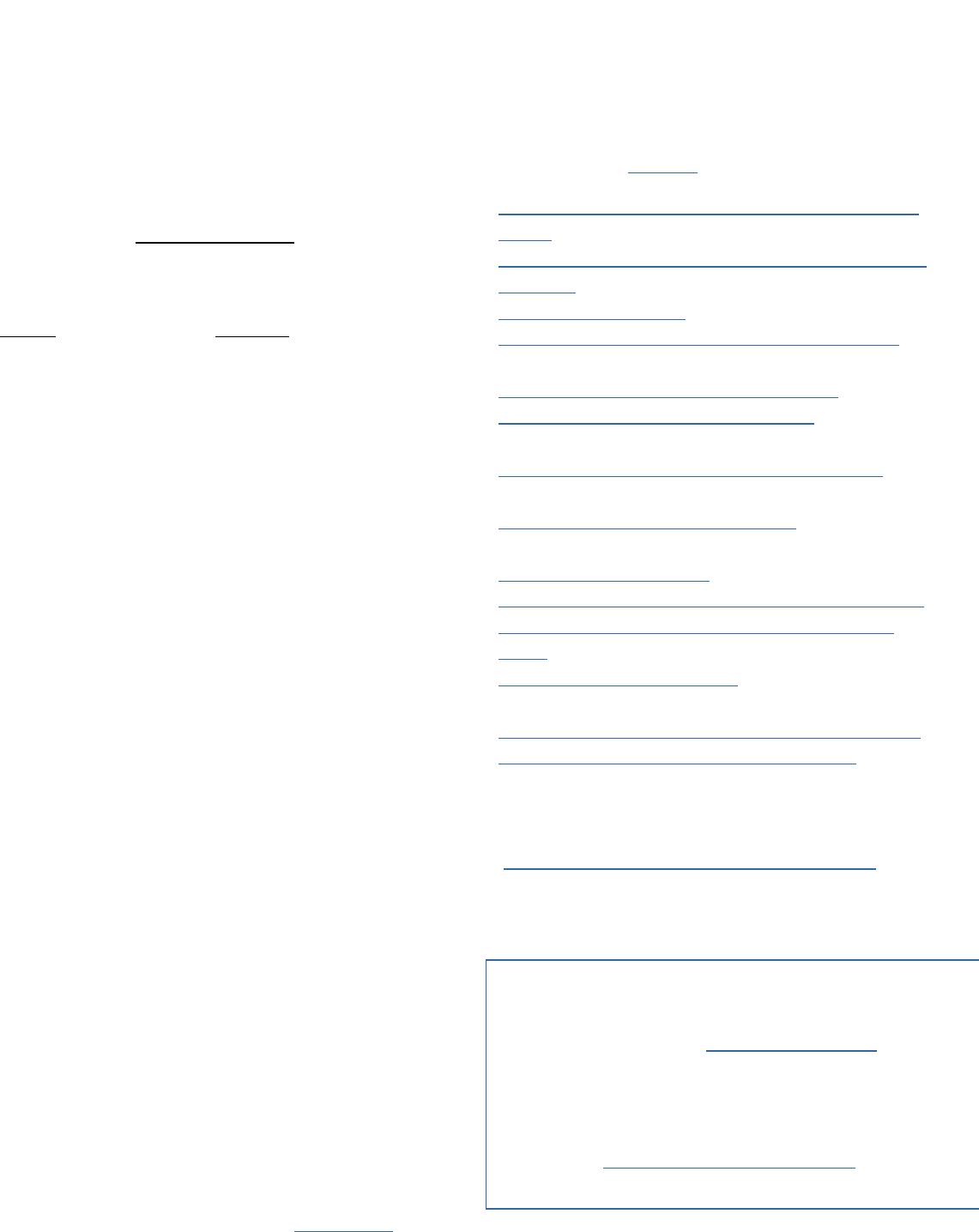
Page 16
This document and any updates are available on
the Associaon of Child Life Professionals
website at: www.childlife.org
Any quesons regarding the content of the
Candidate Manual should be addressed to:
cercaon@childlife.org.
The Child Life Professional Cercaon Examinaon is com-
prised of 150 mulple-choice quesons. The alloed me to
complete the examinaon is four hours.
The following is a lisng of the domains specic to each area
of child life pracce, with a notaon of the percentage of
examinaon items (quesons) related to each domain. This
is taken from the Exam Content Outline and although the
actual content varies from administraon to administraon,
all exams follow this blueprint.
The Child Life Professional Cercaon Examinaon is an
objecve test that covers relevant knowledge, understand-
ing, and praccal applicaon of child life theory and pracce
as determined by the Child Life Cercaon Commission and
other Cered Child Life Specialists surveyed. The exam is
developed by a commiee of experts in the child life profes-
sion as a measurement of basic, entry-level knowledge of
each candidate.
The commiee starts with a periodic Pracce Analysis which
denes the profession of child life by delineang the domain,
tasks, knowledge and skills necessary for competent pracce
as a child life specialist. From this assessment, content areas
and their appropriate relave emphases are dened. A sur-
vey of child life praconers validates the content outline.
Of the 150 quesons on the exam, 25 are pretest items and
are not weighted (not counted toward candidates’ scores).
Pilong items in this manner allows items to be analyzed
before they become weighted and provides vericaon that
the items contribute toward measuring a candidate’s pro-
ciency in the material and are not irrelevant or poorly-
wrien. Candidates answer the pretest items, and then per-
formance data is used in a stascal analysis to determine if
the quesons perform as intended. If so, their ability to con-
tribute to a test’s quality is veried and they can be consid-
ered for inclusion on future exams as scored items.
Each form of the Child Life Professional Cercaon Exami-
naon is equated to ensure that candidates are neither pe-
nalized nor rewarded if an exam form is more dicult or
easier than any other version of the exam. Collecng perfor-
mance data enables the test administraon agency to con-
duct this important process.
For more detailed informaon about how the exam is devel-
oped and how it is scored, please visit the ACLP website.
How to Prepare—Recommended Resources
The following are references that cover the basic concepts in child
life theory and pracce. These references are used to validate the
content of the Child Life Professional Cercaon Exam. Most are
available through the Bookstore secon of the ACLP website.
1. Psychosocial Care of Children in Hospitals: A Clinical Pracce
Manual Gaynard, et al. (1998)
2. Meeng Children’s Psychosocial Needs Across the Healthcare
Connuum Rollins, Bolig, & Mahan (2018)
3. The Handbook of Child Life Thompson (2018)
4. A Child in Pain: What Health Professionals Can Do to Help Ku-
ner (2012)
5. ACLP Ocial Documents of the Child Life Council ACLP (2020)
6. Making Ethical Decisions in Child Life Pracce Burns-Nader et al
(2021)
7. How to Help Children through a Parent’s Serious Illness McCue
& Bonn (2011)
8. Research Methods for Child Life Specialists Burns-Nader et al
(2021)
9. Emoonal Safety in Pediatrics Gordon (2021)
10. The Value of Cered Child Life Specialists: Direct and Down-
stream Opmizaon of Pediatric Paent and Family Out-
comes Boles, J. et al. (2020)
11. Health equity and children’s rights Council on Community Pedi-
atrics and Commiee on Nave American Child Health (2010)
12. Technology and interacve media as tools in early childhood
programs serving children from birth through age 8 Naonal
Associaon for the Educaon of Young Children & Fred Rogers
Center for Early Learning and Children’s Media at Saint Vincent
College. (2012)
13.The Impact of Racism on Child and Adolescent Health Pediat-
rics (2019)
14. Any normal growth and development textbook
This list was updated December 2021.
Examinaon Format and Content
Domain % of Exam
Professional Responsibility 26%
Assessment 37%
Intervenon 37%

Page 17
Personal Idencaon
To gain admiance to the examinaon room, all can-
didates are required to present a government-issued
photo idencaon. Acceptable forms of idenca-
on include a valid driver’s license, passport, or mili-
tary idencaon card.
Admissions Document
At the me candidates schedule their exam appoint-
ment, the tesng agency will provide an admissions
document to each examinee. In order to be admied
to the exam, candidates are required to present this
document at the tesng center on the day of their
appointment.
If a candidate has been pre-approved for special
tesng accommodaons, candidate should present
the conrmaon e-mail sent by CLCC indicang the
accommodaons that have been approved to ensure
that the appropriate tesng accommodaons are
made onsite.
Other
Earplugs for sound suppression are allowed. Head-
phones and ear buds are not permied.
Water must be in a clear/transparent container with
a lid/cap. All labels must be removed, and the con-
tainer will be inspected for test aids. The candidate
will need to remove the lid/cap for visual inspecon
by the Test Center sta. Should the container not
meet the requirements outlined, the candidate will
be required to put it in their locker and will not be
allowed to take it into the test room.
Please bring as few personal belongings as possible.
Books (including all types of diconaries), papers, electronic/cellular
devices (pagers, telephones, etc.), food, and most other personal be-
longings will NOT be permied at your tesng staon. Some tesng
centers have lockers for examinees’ use during the exam however this is
not guaranteed at every locaon. Neither ACLP nor CLCC is responsible
for the security of any personal possessions brought to the examinaon.
During the Examinaon
No food or beverages (except water in a plain, clear bole) will be al-
lowed in the tesng room unless prior approval has been received for
medical reasons. Candidates must submit a Special Accommodaons
Applicaon Packet to request this approval.
Candidates may exit the tesng room to use the restroom or water
fountain. Only one person will be permied to leave the room at a
me. Candidates will not be permied to make up the me lost while
away from the examinaon. If candidates wish to use the restroom,
they should raise their hand and the proctor will give further direcons.
There is an inherent risk of connecvity issues with computer-based
tesng. Candidates who experience technical dicules that aect
their performance must report these to the proctor immediately (prior
to receiving their exam result) and contact SMT immediately aer leav-
ing the tesng center to report the problem.
Any concerns about the tesng site and/or proctors should be reported
immediately and noted on the exit survey at the end of the examina-
on/prior to receipt of the exam results.
Examinaon Day Absences
Refunds will only be approved if the absence is the result of a docu-
mented personal or medical emergency. Absences are reviewed by the
commiee on a case-by-case basis. Refund requests must be received
in wring with supporng documentaon detailing the reason for ab-
sence within 14 days of the examinaon date. CLCC reserves the right to
verify any informaon submied regarding examinaon day absence. If
the absence is excused, payment for the exam will be refunded, less a
$50 U.S. applicaon processing fee, or may be deferred to the next test
administraon in accordance with the policies herein.
Inclement Weather
If severe weather or natural disaster makes the tesng center inaccessi-
ble or unsafe, the test administraon may be canceled. Test administra-
This document and any updates are available on
Exam Day Instrucons
Exam appointments are made based on the oper-
ang schedule of the tesng center selected by the
candidate.
Candidates have four hours in which to complete
the exam. At the discreon of the site administra-
tor, candidates may be admied to the examina-
on up to 20 minutes late. Late arrivals will be re-
quired to sign a statement acknowledging that they
will receive no extra me to complete the exam.
What To Bring
What NOT To Bring

Page 18 Child Life Professional Cercaon Candidate Manual
on will be delayed or canceled only in emergencies.
Candidates who cannot safely reach the test site because of se-
vere weather condions and wish to request a refund of the ex-
aminaon fee, must send the wrien request with documentaon
of the weather condions to CLCC within 14 days of the scheduled
examinaon date. CLCC will evaluate the circumstances on a case-
by-case basis.
Exam Feedback
Examinees will be given the opportunity to comment on the ex-
aminaon administraon, content, or any of its elements prior to
leaving the examinaon room. Exam proctors will provide instruc-
on on this process. Candidates with concerns about the accuracy
of specic exam quesons must provide this feedback prior to
leaving the tesng room. Since CLCC constantly works to improve
the tesng process, candidates are strongly encouraged to pro-
vide feedback on the exam prior to leaving the tesng room.
Examinaon Security
Any candidate who gives or receives assistance, or whose behav-
ior is disrupve during the examinaon, will be required to leave
the tesng room immediately. The candidate’s answers will not be
scored and the situaon will be reported to CLCC for review and
possible acon by the Ethics Commiee. Any candidate who ob-
serves inappropriate test taking behavior should report it to ap-
propriate tesng personnel. In order to detect fraud, the perfor-
mance of all candidates is monitored and analyzed stascally.
The enre item (queson) bank, examinaon materials and each
form of the examinaon are the property of the Associaon of
Child Life Professionals Inc. Distribuon of exam content or mate-
rials through any form of reproducon, including oral and wrien
communicaon, is strictly prohibited and punishable by law. Any
individual who removes or aempts to remove examinaon mate-
rial from the test site will be prosecuted; this includes memoriza-
on of quesons.
Test development and security requirements prevent CLCC from
releasing test quesons or other specic exam content to anyone,
under any circumstances.
Discussion of exam content with other candidates following the
exam is considered a breach of examinaon security and is not
permied.
Aer the Exam/Score Reporng
You will receive a preliminary score report before leaving the
tesng center. The scores will be subjected to a stascal
analysis and there is a very slight chance that they will
change. You will be noed if there is a change to your score.
Once your results are posted in your ACLP Online User Prole,
they are considered nal.
The purpose of the Child Life Professional Cercaon Exam is
to measure an individual’s performance compared to a spe-
cic criterion (the established passing score as dened by
subject maer experts), this is called a criterion-referenced
exam. This type of exam is not intended to measure a range
of levels of competence, but rather to conrm that an indi-
vidual meets a minimum level of competence. Like most
credenaling exams, the objecve of the Child Life Profes-
sional Cercaon Exam is to measure candidates’ compre-
hension of the body of knowledge idened in the Pracce
Analysis Study, not to compare it with that of other candi-
dates.
The goal of criterion-referenced assessments is to measure
performance most precisely in a narrow range near the pass-
ing score. The more precise the exam is in this range, the less
suitable it is for assessing aptude at levels above/below the
passing score. As a result it would be inappropriate to use
test scores to rank individuals.
For this reason, CLCC does not release test scores above the
passing score. If a candidate reaches or exceeds the passing
score, they will not receive their numerical score, only the
informaon that they have passed the exam. This is done in
part to prevent the improper ranking of individuals by stake-
holders such as prospecve employers. Candidates who do
not meet the cut score will receive their numerical scaled
score as well as the percentage of correct answers they pro-
vided for each of the three domains. This informaon is pro-
vided to help candidates focus their studies for future exami-
naons.
Condenality
Registraon for the Child Life Professional Cercaon
Examinaon constutes authorizaon for the tesng
agency to release that candidate’s exam results to CLCC,

Page 19
Re-Examinaon Procedures
Candidates can only take the exam once per tesng window. Three test forms will be available each year. Therefore, candidates are
allowed to sit for the examinaon three mes per year and will be administered a dierent test form with each aempt. Aer three
aempts, a candidate must skip an administraon (tesng window) of the examinaon. If they fail a fourth me, candidates must
skip another administraon of the examinaon prior to taking a h me. When a candidate is required to skip an examinaon
administraon, the candidate is encouraged to seek out learning opportunies and coursework to gain further informaon regard-
ing the child life profession and skills. If eligibility requirements have changed since the last examinaon aempt, a candidate must
reestablish eligibility prior to retaking the examinaon. Candidates are limited to taking the examinaon 5 mes. Addional
aempts require the approval of the Appeals Commiee.
Examination Appeals
Only appeals relang to the tesng environment or administraon and its eect on candidate performance will be considered.
A candidate must submit a leer to CLCC stang the reason for the appeal, including supporng documentaon, within 14 days of
the date on which the exam was administered.
The Appeals Commiee has no access to examinaon quesons or individual candidate answers. Candidates with concerns about
the accuracy of specic exam quesons must provide this feedback prior to leaving the tesng room.
Candidates who experience technical dicules that aect their performance during computer-based tesng must report these to
the proctor immediately (prior to receiving their exam scores) and contact SMT immediately aer leaving the tesng center to re-
port the problem.
Cercaon will not be granted through appeal. Candidates must pass the examinaon at another administraon to become cer-
ed, but the CLCC may grant a waiver or reducon of fees.
I Didn’t Pass the Exam – What Are My Opons?
ACLP sta, and to the candidate only. Access to score reports is limited to those sta members at ACLP and its test
administraon agency who are involved in the producon and distribuon of these reports.
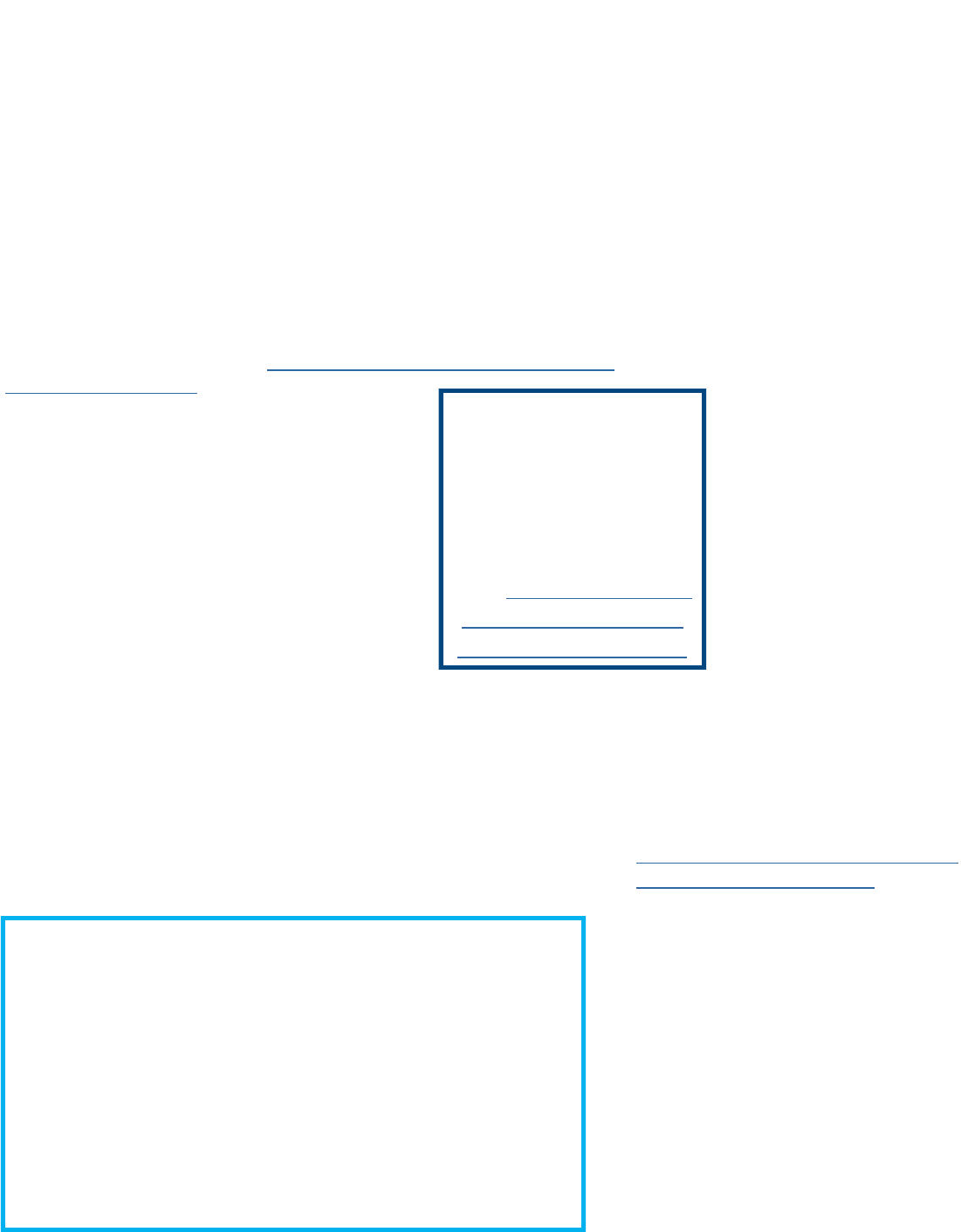
Page 20 Child Life Professional Cercaon Candidate Manual
Congratulaons! You’re a Cered Child Life Specialist!
Candidates who successfully complete the Child Life Professional Cercaon Exami-
naon begin a ve-year cercaon cycle as Cered Child Life Specialists (CCLSs).
Cered Child Life Specialists are permied to use the inials “CCLS” aer their
names. CCLS is a registered cercaon mark. It is not punctuated with periods.
Cered Child Life Specialist is a credenal, not a job tle, and can only be used by
those who have passed the cercaon exam.
Shortly aer the tesng window closes, you will receive a wall cercate along with
important informaon on maintaining the CCLS credenal. Please be sure to review
this material carefully as well as the Child Life Professional Cercaon Maintenance
and Recercaon Manual.
Maintaining Cercaon
In order to keep their cercaon status acve, CCLSs are
required to pay a cercaon maintenance fee each of the
rst four years of the ve-year cercaon cycle.
Whereas examinaon and recercaon fees cover ex-
penses directly related to those specic acvies, the prin-
cipal purpose of the cercaon maintenance fee is to
enable the ongoing work on behalf of CCLSs.
Newly cered or recered CCLSs pay the rst of these
four payments in the calendar year immediately following the year in which the exam
was passed or the year in which recercaon was achieved. For example, if a CCLS
passes the exam at any of the administraons in 2019, the rst cercaon mainte-
nance payment will be due on or before January 31, 2020.
Individuals who do not pay these fees allow their cercaon to lapse, and are no
longer permied to refer to themselves as Cered Child Life Specialists or use the
CCLS credenal. If cercaon lapses due to non-payment of maintenance fees, an
individual must re-establish eligibility under current requirements, take and pass the
cercaon examinaon to regain the credenal.
Recercaon
In the h year of the cercaon cycle,
CCLSs must recerfy in order to connue
their cercaon. Recercaon is required
in order to promote connuing competence.
As the child life profession connues to
evolve and expand, it is imperave that child
life specialists keep abreast of current re-
search and best pracces in order to pro-
mote competency and consistent quality in
the delivery of psychosocial care to children
and families.
During the year in which a
CCLS’s cercaon expires,
CLCC will send recercaon
reminders via email. CCLSs
may opt to recerfy through
Professional Development
Units (PDUs) or by retaking the
Child Life Professional Cer-
caon Examinaon.
Individuals who become cered
or who recerfy in 2015 or subsequent years
and who elect the PDU opon will be re-
quired to acquire 60 PDUs over the course of
the ve-year cercaon cycle on topics re-
lated to each of the domains of the Exam
Content Outline as well as the topic of pro-
fessional ethics. These are detailed in the
Child Life Professional Cercaon Mainte-
nance and Recercaon Manual.
If a CCLS does not recerfy during the nal
year of the ve-year cercaon cycle, cer-
caon expires.
To regain the credenal, an individual with
expired cercaon must re-establish eligi-
bility under current requirements, take and
pass the cercaon examinaon.
Revoking the CCLS Credenal
Child life professional cercaon may be revoked for any reason CLCC deems
appropriate, including, but not limited to, the following reasons:
• Falsicaon of cercaon materials
• Falsicaon of any informaon requested by CLCC
• Violaon of the Child Life Code of Ethics
• Convicon of a felony or other crime of moral turpitude relang to the pro-
vision of child life services
• Cheang on the examinaon
• Failure to maintain the condenality of the cercaon examinaon
These are current policies
and are subject to change.
Please refer to the detailed
informaon about maintain-
ing the credenal and the
recercaon process found
in the Child Life Professional
Cercaon Maintenance
and Recercaon Manual
Page 20 Child Life Professional Cercaon Candidate Manual

Child Life Code of Ethics
Eecve October 1, 2023
Cered Child Life Specialists (“CCLSs”) subscribe to a body of ethical Principles and Rules which are in accordance with
the Associaon of Child Life Professionals’ Mission, Values, and Vision Statements and Operang Procedures and which
are derived primarily for the benet and protecon of children (unless modied, children refers to infants, toddlers,
teenagers, and other individuals under the age of majority), and families in sengs where the potenal for damaging
stress or trauma exists. The Child Life Cercaon Commission (“Commission") is the sole body authorized to award the
CCLS designaon. The CCLS designaon bestows a recognized level of excellence for child life professionals. Part of that
competence relates to an understanding that members and their leadership and sta will abide by the Child Life Code of
Ethics, thereby protecng the public they are called to serve.
CCLSs recognize that they are ethically responsible to: (1) children and families; (2) other professionals; (3) sta, stu-
dents and volunteers who are receiving training and supervision; and (4) the profession.
It is understood that ethical behavior should not result from edict but from a personal commitment on the part of the
individual as a professional. In any situaon, the course of acon chosen is expected to be consistent with the Princi-
ples and Rules either stated or implied herein.
All those providing child life services (including specialists, administrators, assistants, interns and students) share as a goal:
(1) maximizing the physical and emoonal health as well as the social, cognive, and developmental abilies of children,
and (2) minimizing the potenal stress and trauma that children and their families may experience. These goals are best
accomplished by adhering to this Child Life Code of Ethics.
To this end, the Commission hereby establishes this Child Life Code of Ethics stang that all individuals holding the CCLS
credenal are bound to:
• Conduct their businesses according to high standards of integrity and fairness and to render that service so that any
“prudent person” would agree that those holding the CCLS credenal conduct their businesses in a manner that is
beyond reproach.
• Provide competent, “paent and family-centric” service that protects the public.
• Abide by all applicable governing rules, regulaons, and standards.
The Child Life Code of Ethics consists of two parts: The Principles and The Rules. The Principles embody the ethical and
professional standards expected of those holding the CCLS credenal. These Principles address the “substance” and not
merely the “form” of service provided. The Principles are the guidelines of professional conduct, the same conduct that
any individual would expect of any professional organizaon on which they rely. The Rules serve as a descripon of best-
pracce or CCLS standards and outline how the principles must be implemented in specic circumstances.
The Principles:
Principle 1 -- CCLSs hold a primary commitment to the psychosocial care of the paent and family and uphold the mis-
sion, vision, values, and operang principles of the profession.
Principle 2 -- CCLSs have a duty to maintain objecvity, integrity, and competence, while exhibing compassion.
Page 21

Principle 3 -- CCLSs have an obligaon to maintain an environment that respects every variaon of race, identy, abil-
ity, and community.
Principle 4 -- CCLSs respect the privacy of children and families and maintain condenality within the standards and
requirements of employers, local governing regulaons, or private pracce standards.
Principle 5 -- CCLSs demonstrate the competencies of the child life profession by connuous eorts to improve profes-
sional services and pracces provided in the diverse sengs in which they work, and in the community at large.
Principle 6 -- CCLSs provide services within their competencies and make appropriate referrals with due regard for the
professional competencies of other members of the health care team and the community within which they work.
Principle 7 -- CCLSs respect the dues, competencies and needs of their professional colleagues and maintain the ut-
most integrity in all interacons with the instuons or organizaons that employ them or in their private pracces.
Principle 8 -- CCLSs connually seek knowledge and skills that update and enhance their understanding of all relevant
issues aecng the children and families they serve.
Principle 9 -- CCLSs respect the convenons of scholarly inquiry and recognize their responsibility for ethical pracce
in research.
Principle 10 -- CCLSs use integrity to assess and amend any personal relaonships, social media exchanges, or situa-
ons that may interfere with their professional eecveness or objecvity, or otherwise negavely impact the chil-
dren and families they serve. Child life professionals ensure the conclusion of their professional role before any person-
al relaonship is permied to develop with children or the members of families they have served.
Principle 11 -- CCLSs recognize that nancial gain should never take precedence over the mission, vision, values, and
operang principles of the profession.
Principle 12 -- CCLSs accountable for the supervision and training of others (e.g., sta, students, volunteers) assume
responsibility for teaching ethical professional values and providing opmal learning experiences.
The Rules
Competence
Rule 101: CCLSs shall keep informed of developments in the profession and parcipate in connuing educaon
throughout their professional careers in order to improve professional competence in all elds in which the designee is
involved.
Condenality
Rule 201: A CCLS shall not reveal or use, without wrien consent, any personally idenable informaon except and to
the extent that disclosure or use is reasonably necessary to: (a) Comply with legal requirements or legal process; or (b)
Defend the CCLS against charges of wrongdoing; or (c) Defend the CCLS in connecon with a civil dispute between the
CCLS and the individual.
Rule 202: A CCLS shall maintain the same standards of condenality to employers and employees as to individuals.
Page 23 Child Life Professional Cercaon Candidate Manual

Professionalism
Rule 301: A CCLS shall use the designaon in compliance with the current policies of the Commission, as established
and amended.
Rule 302: A CCLS shall show respect for other businesses, professionals, and related occupaonal groups by engaging in
fair and honorable compeve pracces.
Rule 303: A CCLS who has knowledge that another CCLS has commied a violaon of this Code shall promptly nofy
the Ethics Commiee. A violaon would be any act that raises substanal quesons as to another CCLS’ integrity, com-
petence, or business pracces. For the purposes of this Rule, knowledge means no substanal doubt.
Rule 304: A CCLS who has knowledge that raises a substanal queson of legally aconable, unprofessional, fraudu-
lent, or illegal conduct by a CCLS shall promptly inform the appropriate regulatory body if appropriate, as well as the
Ethics Commiee. For purposes of this Rule, knowledge means no substanal doubt.
Rule 305: In all professional acvies, a CCLS shall perform services in accordance with: (a) Applicable laws, rules, and
regulaons of governmental and other applicable authories; and (b) Applicable rules, regulaons, and other estab-
lished policies of the Commission.
Rule 306: CCLSs shall not engage in any conduct that reects adversely on their integrity or business pracces.
Rule 307: A CCLS shall always act in the best interest of individuals, serving the overarching requirement to protect the
public.
Fairness and Integrity
Rule 401: A CCLS shall, in rendering services, disclose all material informaon relevant to the professional relaonship,
including but not limited to conict(s) of interest(s), address, telephone number, cercaon status, and qualicaons.
Rule 402: A CCLS shall not, during the course of rendering professional services, engage in conduct that involves dis-
honesty, fraud, deceit or misrepresentaon, or knowingly make a false or misleading statement to a paent, employer,
employee, professional colleague, governmental or other regulatory body or ocial, or any other person or enty.
Rule 403: A CCLS is prohibited from the unauthorized or misleading use of the CCLS designaon. If the CCLS renewal
date has passed and the CCLS has not fullled requirements to maintain cercaon, the CCLS designaon may not be
used unl the CCLS meets all current requirements. Addionally, CCLSs are prohibited from using the CCLS designaon
to represent their organizaon as specialists in a parcular business service, or from using the designaon in any way
to mislead individuals about their experse or breadth of experience.
Rule 404: A CCLS shall not discriminate against others based on, but not limited to, gender, race, age, religion, disabil-
ity, naonality, sexual orientaon, gender identy, gender expression, or other protected class.
Violaon of the Child Life Code of Ethics
CCLSs that violate the Child Life Code of Ethics shall be subject to disciplinary acon. The Ethics Commiee maintains
and implements disciplinary policy and procedures.
Page 24

Page 24 Child Life Professional Cercaon Candidate Manual
Child Life Professional Cercaon Exam Content Outline, eecve 1/1/24
Domain I: Professional Responsibility (26%)
1. Adhere to standards of ethical pracce.
A. Professional boundaries and therapeuc relaon-
ships (e.g., children, families, child life profession-
als, emerging professionals, mul-disciplinary pro-
fessionals, students, volunteers)
B. Condenality and privacy laws
C. Ulize ethical tenets and principles to guide prac-
ces (e.g., personal, peer, and professional ac-
countability, conicts of interest, social media)
D. Protecon, safety, and rights of the child and fam-
ily
1. Physical and emoonal safety (e.g., safe envi-
ronment, recognize maltreatment, duty to
report abuse/neglect)
2. Consent and assent
3. Trauma-informed care
E. Maintain an environment that respects and re-
sponds to diversity, equity, and inclusion (DEI)
F. Responsibility to engage in the appropriate super-
vision and training of others
2. Engage in opportunies for connuous improve-
ment in child life pracce.
A. Self-reecon (e.g., awareness of biases, projec-
on, transference, work/life boundaries)
B. Recognion of, and strategies to combat, poten-
al stressors related to the profession (e.g., burn-
out, compassion fague, discriminaon, second-
ary trauma)
C. Acvies of inquiry and evidence-based pracce.
3. Collaborate eecvely with mul-disciplinary pro-
fessionals.
A. Clear and objecve documentaon outlining the
assessment, plan, intervenon, and evaluaon
(APIE) process
B. Integrate a variety of educaonal techniques
(e.g., lectures, hands-on acvies, use of media)
when speaking to and networking with diverse
individuals and groups
C. Educaon of internal and external audiences
about child life services and psychosocial care
1. Child development
2. Coping
3. Family systems
4. Play
Domain II: Assessment (37%)
1. Assess and priorize children and families based on
psychosocial risk and need.
A. Ulize play in assessment
B. Ulize assessment tools and techniques (e.g., devel-
opment, conversaons, Psychosocial Risk Assess-
ment in Pediatrics (PRAP), stress point potenal)
C. Assess through a trauma-informed approach (e.g.,
Adverse Childhood Experiences (ACEs), Pediatric
Medical Traumac Stress (PMTS))
D. Connuous reassessment and evaluaon of inter-
venons
2. Assess relevant health care data to develop a compre-
hensive plan of care.
A. Impact of illness, injury, and health care experienc
B. mpact of diagnosis, procedures, and treatment
C. Impact of health care trends, disparies, and envi-
ronment
D. Child's understanding of illness and healthcare expe-
rience
3. Assess developmental data to develop a comprehen-
sive plan of care.
A. Physical, cognive, communicaon, and social-
emoonal development of the child
B. Developmental theories, viewed through a lens of
cultural humility (e.g., adverse child experiences,
aachment, contextual framework, coping, resilien-
cy)
C. Developmental variables that impact a child's stress
potenal (e.g., absence of support system, coping
skills, physical limitaons)
4. Assess family variables to develop a comprehensive
plan of care.
A. Composion and dynamics (e.g., pracces, prefer-
ences, roles)
B. Interpretaon and understanding of health, illness,
and loss

Page 25
C. Ulizaon of self-advocacy
D. Access to support and resources
E. Response to healthcare and community-based sys-
tems and instuons
5. Assess cultural and contextual variables to develop a
comprehensive plan of care.
A. Diversity, equity, and inclusion (DEI) consideraon
B. Systemic and structural bias, discriminaon, racism,
and equity
C. Communicaon and learning styles
D. Strength-based approach to paent- and family-
centered care
Domain III: Intervenon (37%)
1. Provide paent- and family-centered care (i.e., dignity
and respect, informaon sharing, parcipaon, and
collaboraon)
A. Care inclusive of diversity, equity, and inclusion (DEI)
B. Interdisciplinary/muldisciplinary approach
1. Opportunies for collaboraon (e.g., co-treang,
research)
2. Appropriate consultaons/referrals
C. Partner with children and families via a therapeuc
relaonship
2. Incorporate play theories and apply to pracce.
A. Play that is culturally and developmentally relevant
to needs of child and family
1. Normalizing play
2. Developmental play
3. Healthcare/medical play
4. Therapeuc play
5. Child-directed play
B. Appropriate play experiences to facilitate opmal
coping (e.g., assessment, educaon, mastery, nor-
malizaon, rapport building)
C. Environments conducive to play (e.g., acvity/play
rooms, camp, outdoor, paent room, virtual)
3. Provide educaon specic to the individual needs of
child and family.
A. Ulizaon of assessment variables to imple-
ment a plan of care that supports individual-
ized needs
1. Psychological preparaon
2. Healthcare teaching
3. Coping strategies (e.g., alternave focus,
deep breathing, guided imagery)
4. Resources (e.g., camps, foundaons, inte-
grave and expressive therapies)
5. Pain management support and advocacy
a. Non-pharmacological (e.g., posion for
comfort, posive touch, sensory distrac-
tors, technology)
b. Pharmacological
B. Educaon about developmental needs, abili-
es, and responses
C. Encouragement of child and family to advocate
for their needs
4. Support child and family through diagnosis, treat-
ments, and transions of care
A. Provide procedure support specic to the indi-
vidual needs of child and family (e.g., coping
strategies and evidence-based approaches)
B. Adapng and individualizing intervenons
based on child and family's cues and respons-
es
5. Support child and family experiencing loss, grief,
and/or bereavement.
A. Developmental, family, and DEI consideraons
B. Grief support and therapeuc intervenons
C. Legacy building and memory making
D. Inter-/mul-disciplinary engagement (e.g.,
hospice, palliave care, spiritual care)
E. Educaon and resources
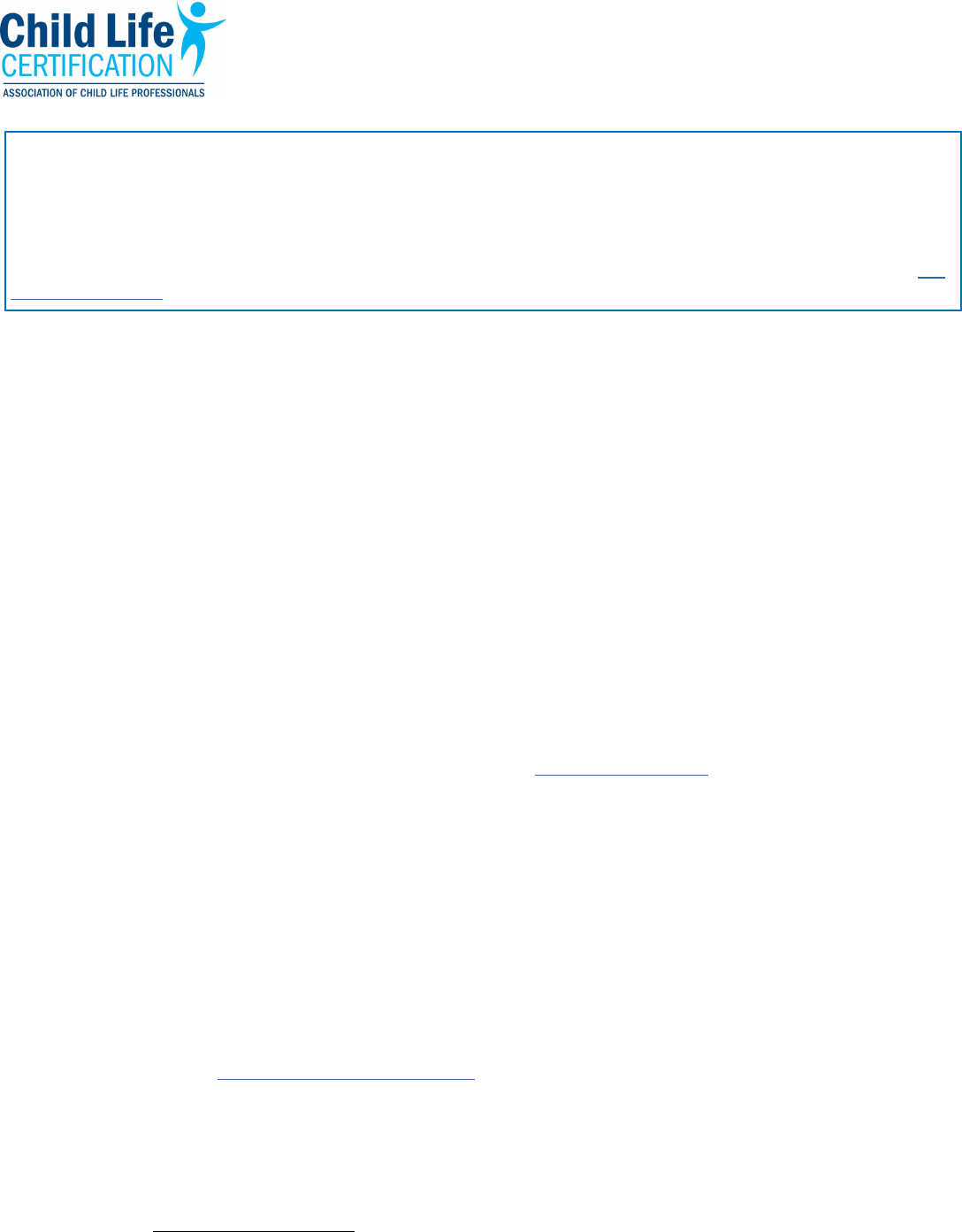
Child Life Certification Commission
Clinical Experience Verification Form
Effective January 2019 (revised September 2021)
The Child Life Certification Commission cannot bestow competence on individuals, but rather recognizes it. It is the re-
sponsibility of academic and clinical preparation programs to put forth competent individuals who are prepared to establish
eligibility to sit for and pass the certification exam.
The purpose of this form is the verification of internship hours for the purpose of establishing eligibility for the Child Life
Professional Certification Examination. The internship hours being verified should involve training and education in a
manner that results in minimum, entry-level competence in each of the areas of the Child Life Professional Certification Ex-
am Content Outline. All concepts and relevant skills delineated therein are required for a complete training experience.
Important Notes
Candidates are permitted to accrue the required clinical hours at more than one institution. This form must be completed
by each institution.
Candidates are required to complete some of the required hours in a hospital setting. There is no minimum.
Candidates submitting this form who completed the internship with remote supervision must have previously obtained
authorization through the Extenuating Circumstances Policy. The internship coordinator must indicate on this form that
remote supervision was approved.
Photocopies of the original form are accepted as documentation when establishing eligibility for the exam.
Exam candidates are encouraged to keep a copy of this form for their records.
Instructions
Complete the requested information on the following page and submit by upload to the applicant’s record, fax to 571-483-
4482, scan/email to certifica[email protected] or mail to:
Association of Child Life Professionals
7600 Leesburg Pike West Ste 200
Falls Church, VA 22043
Clinical Rotation Supervisors
Clinical rotation supervisors must meet the following
criteria:
1. Maintains professional child life certification
throughout the clinical training program
2. Has a minimum of 4,000 hours paid child life
clinical experience prior to taking on the superviso-
ry role
3. Is responsible for the educational development and
guidance of the applicant in the clinical setting.
Clinical rotation supervisors must:
• Have daily contact with the individual, working at
least 80% of the same hours
• Have no dual relationships with the individual
(family member, spouse, friend, etc.)
• Arrange for alternate supervision of the individual
by another qualified CCLS in their absence
• Model for and then observe the individual
demonstrating a minimum, entry-level compe-
tence
• Directly observe the individual in order to
monitor and evaluate performance
• Schedule private, weekly, formal, and
uninterrupted supervision meetings with the indi-
vidual
Internship Coordinator
Internship coordinators must meet the following criteria:
1. Maintains professional child life certification throughout the
clinical training program
2. Has a minimum of 4,000 hours paid child life clinical
experience prior to taking on the supervisory role
3. Is responsible for the educational development and guidance
of the applicant in the clinical setting.
In lieu of a formal internship coordinator, a designated clinical
supervisor must be named to fulfill this role and complete the
verification form. The designated individual must meet the
clinical rotation supervisor requirements.
Internship coordinators must:
• Be responsible for oversight of internship program with
the support of the clinical rotation supervisors.
• Work with the clinical rotation supervisors to educate,
evaluate, mentor, and coach interns
• Ensure educational opportunities for interns are available
to help them gain knowledge and experience in relation to
the Exam Content Outline
• Serve as a liaison between the child life department and
academic institutions, where applicable
• Schedule private, weekly, formal, uninterrupted supervision
meetings with the individual
• Provide intern with the Clinical Experience Verification
Form at the completion of the internship
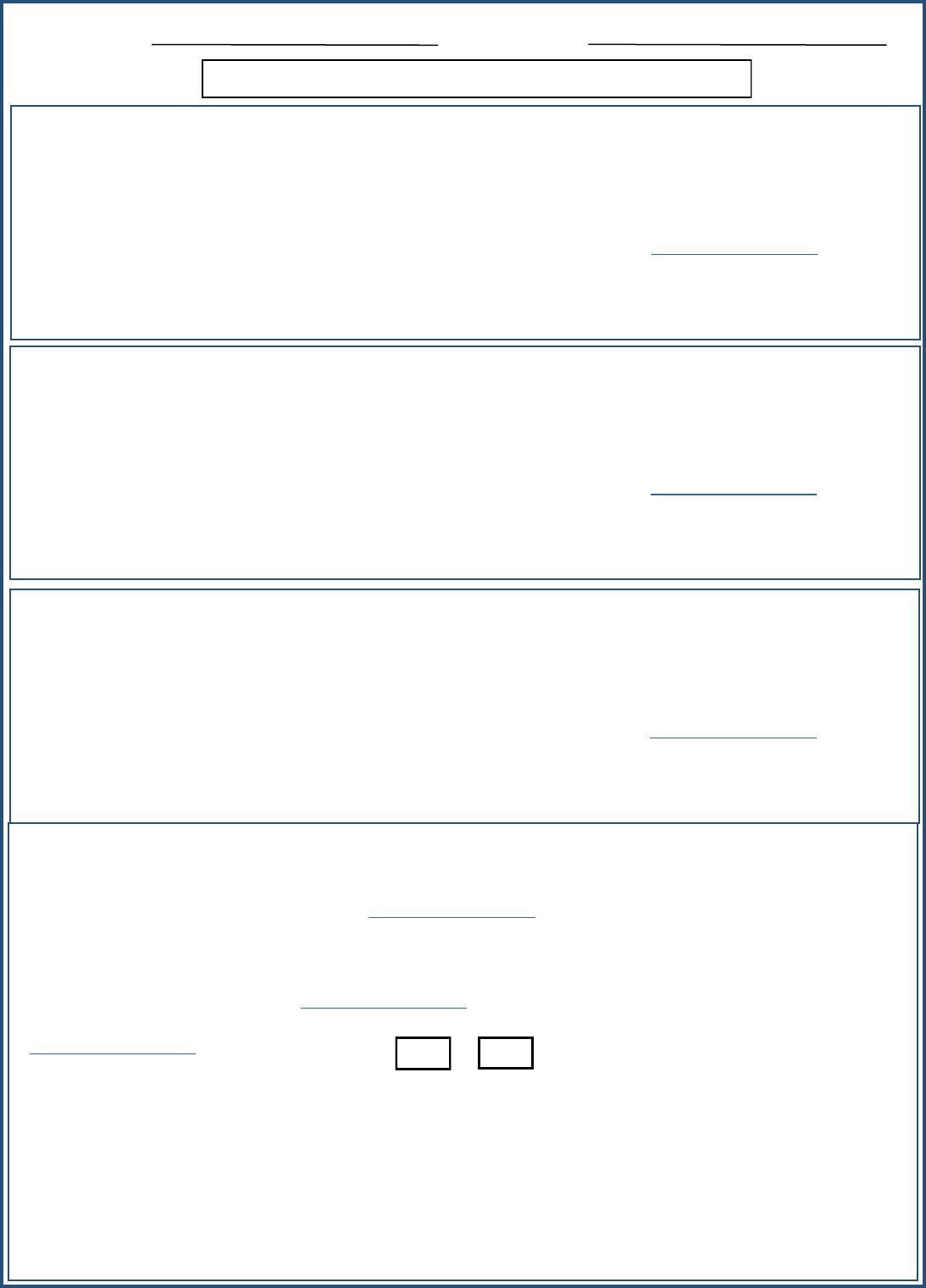
Applicant Name
Instuon Name
CLCC-Approved Remote Supervision Yes or No (circle one)
Clinical Rotaon Supervisor 2
Name (printed) ___________________________________________________CCLS #__________________
Dates of supervision from________________________________to________________________________
By signing this form, the clinical rotaon supervisor aests to meeng the supervisor requirements and directly ob-
serving the intern successfully perform or be trained in the skills idened on the Exam Content Outline.
Signature______________________________________ Date_________________________________________
Internship Coordinator or Designated Individual
Name (printed) ___________________________________________________CCLS #__________________
Interns must be trained on all items on the Exam Content Outline by one of the following: clinical rotaon super-
visor or internship coordinator. By signing this form, the coordinator (or designated individual) aests that they
meet the internship coordinator requirements and that all these elements were included in the training experi-
ence. By stang that the applicant exhibits minimum, entry-level competence, you aest that they have been
adequately trained relevant to the Exam Content Outline, supervised by an appropriately-qualied CCLSs, and
during this period, the applicant has demonstrated minimum, entry-level competence in all areas of the
Exam Content Outline: (Check one)
Start Date __________________ End Date _________________ Number of Hours Completed _______________
Signature______________________________________ Date__________________________________________
Yes
No
Clinical Rotaon Supervisor 3
Name (printed) ___________________________________________________CCLS #__________________
Dates of supervision from________________________________to________________________________
By signing this form, the clinical rotaon supervisor aests to meeng the supervisor requirements and directly ob-
serving the intern successfully perform or be trained in the skills idened on the Exam Content Outline.
Signature______________________________________ Date_________________________________________
Clinical Rotaon Supervisor 1
Name (printed) ___________________________________________________CCLS #__________________
Dates of supervision from________________________________to________________________________
By signing this form, the clinical rotaon supervisor aests to meeng the supervisor requirements and directly ob-
serving the intern successfully perform or be trained in the skills idened on the Exam Content Outline.
Signature______________________________________ Date_________________________________________
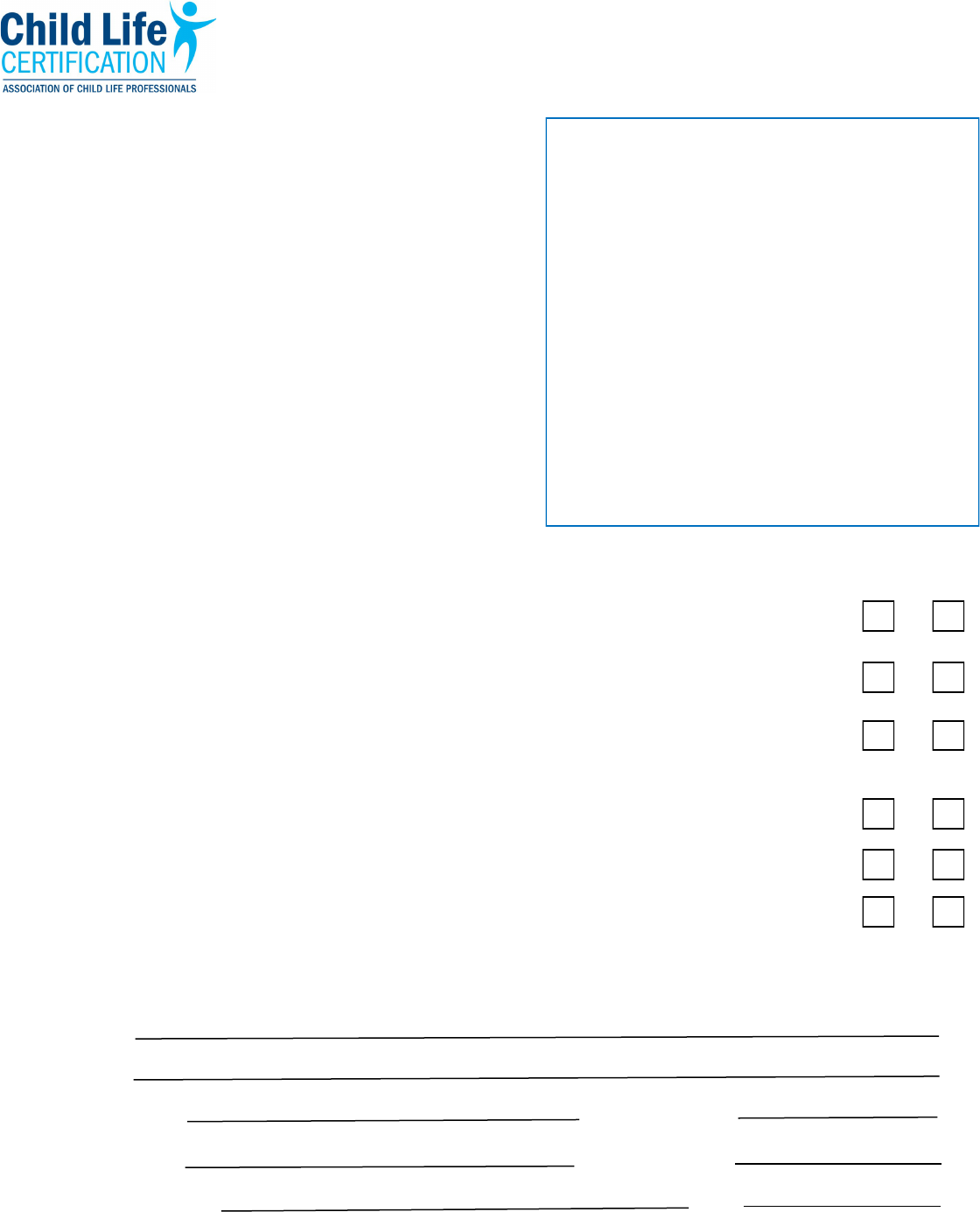
Notes:
To be accepted, courses MUST be taken for college cred-
it (non-credit/audited courses are not accepted) AND be
taken at an academic instuon that has been accredit-
ed by an organizaon recognized by either the US De-
partment of Educaon or the Council on Higher Educa-
on Accreditaon or the internaonal equivalent
Candidates MUST submit an ocial transcript docu-
menng that a passing grade was achieved.
Courses may be taken either in-person or online.
There is no minimum number of credit hours per course.
Photocopies are accepted.
Students should keep a copy of this form for their rec-
ords.
When complete, submit this form by fax to 571-483-
4482, email to cercaon@childlife.org, or mail to:
ACLP 7600 Leesburg Pike West, Ste 200, Falls Church, VA
22043
Child Life Certification Commission
Child Life Course Verification Form
Effective September 2021
By signing this form you aest that all condions set forth above have been met and the indicated areas of
instrucon were delivered by a CCLS to the student named below.
Student Name
Academic Instuon
Semester/Year
CCLS Instructor Signature
CCLS Instructor Name
Cercaon #
Date
Course Name
The following required topics of study were/were not
covered in this course: (Please check the appropriate box next to each of the topics below)
1. Child Life Documents-Ocial Documents of ACLP including the Child Life Code of Ethics, Child Life Compe-
tencies, and Standards of Clinical Pracce, the Child Life Mission, Values and Vision Statements,
2. Scope of pracce – The spectrum of child life pracce in direct and non-direct services in pediatric health care
including a historical review of the profession and its development in the evoluon of children’s healthcare.
3. Impact of illness, injury and health care on paents and families – Stressors and developmental
and psychosocial treatment issues that aect the health care experience of a “child and family” including siblings
within the context of developmental theory
4. Family-Centered Care– Principles of paent-/family-centered care, including principles of respect and digni-
ty, informaon sharing, supporng parcipaon in care, and collaboraon in relaonship to child life pracce.
5. Therapeuc play– Elements/benets of play, and various therapeuc play modalies for the clinical seng.
6. Preparaon– Historical/current perspecves on the raonale for, and techniques/outcomes of preparaon, as
well as accepted preparaon methods for healthcare encounters and life-changing events.
Covered
NOT
Covered
Y
Y
Y
Y
Y
Y
N
N
N
N
N
N
The required child life course(s)* must have a focus on
children in the health care environment and must be
taught by a Cered Child Life Specialist (CCLS) who:
• Maintains the CCLS credenal throughout the period of
instrucon
• Has a minimum of 4,000 hours of paid child life clinical
experience OR a minimum of 2 years of experience
teaching child life subject maer**
• Maintains knowledge of the Child Life Code of Ethics and
the Ocial Documents of the Associaon of Child Life
Professionals
• Pursues training relevant to adult learning styles and evi-
dence-based teaching methodology
*Academic programs may choose to provide coverage of these six topics in more than one course as long as each course covering the areas is taught by a CCLS. In such
cases, a Child Life Course Vericaon Form must be submied for each course, providing conrmaon that the applicant received instrucon from a CCLS in each of the
required topics of study.
**CCLS must be able to demonstrate that the two years of teaching experience was completed prior to 2022. Beginning in 2022, those without prior teaching experiences
who wish to iniate a child life course will only be considered qualied if they have a minimum of 4,000 hours of paid child life clinical experience
